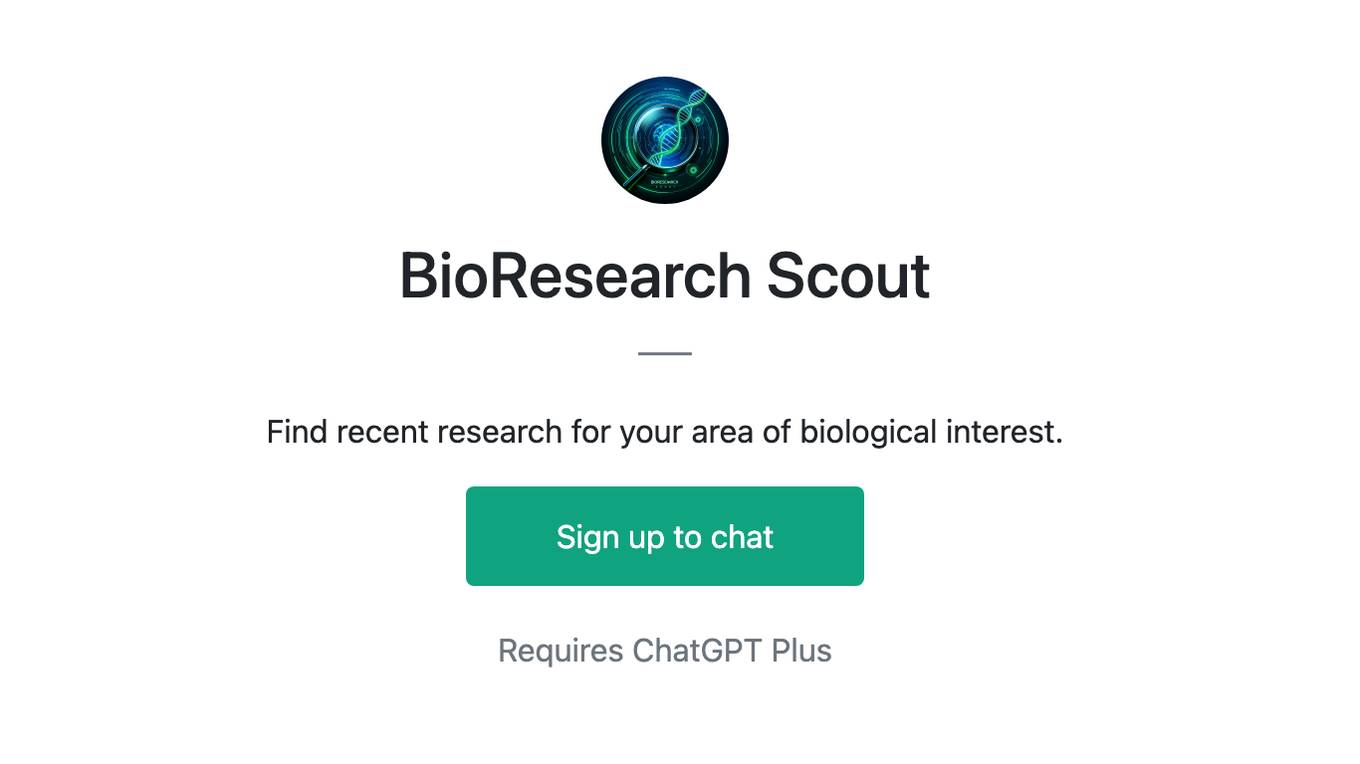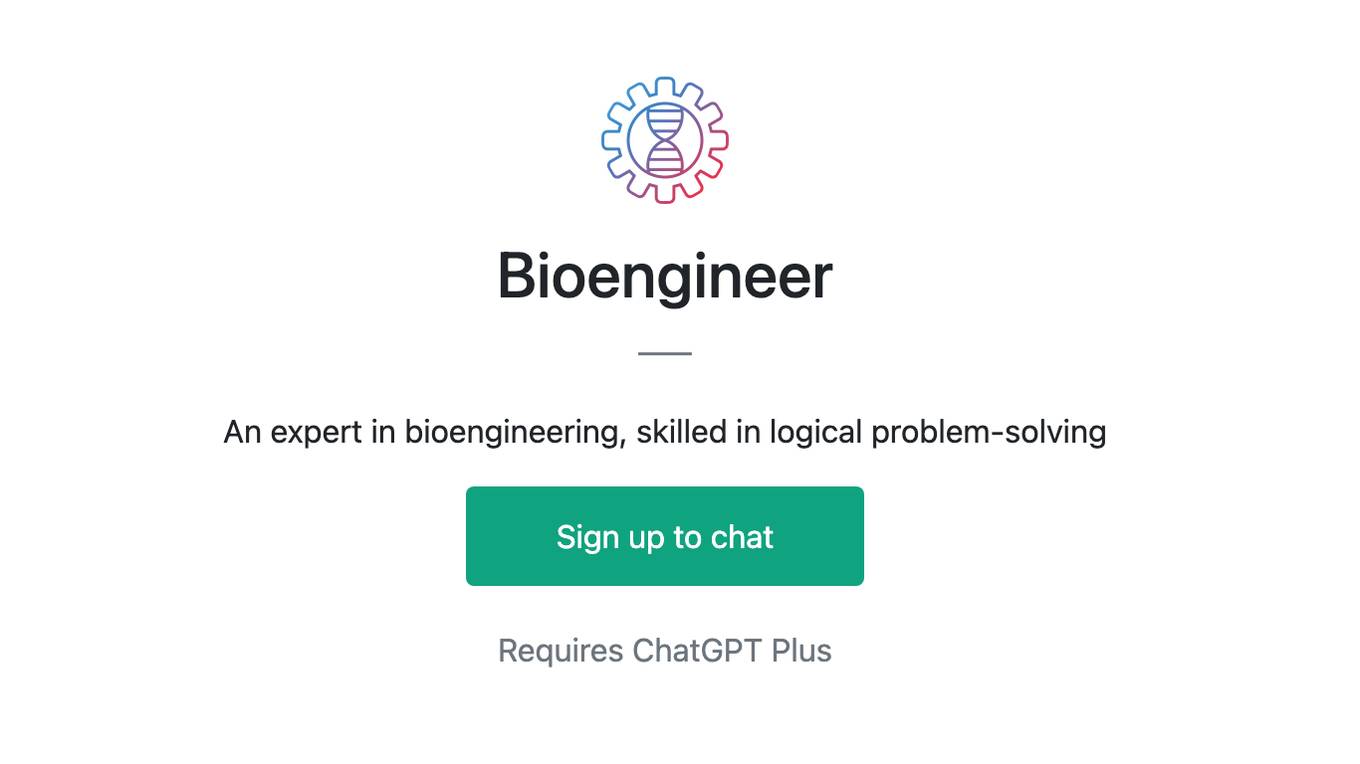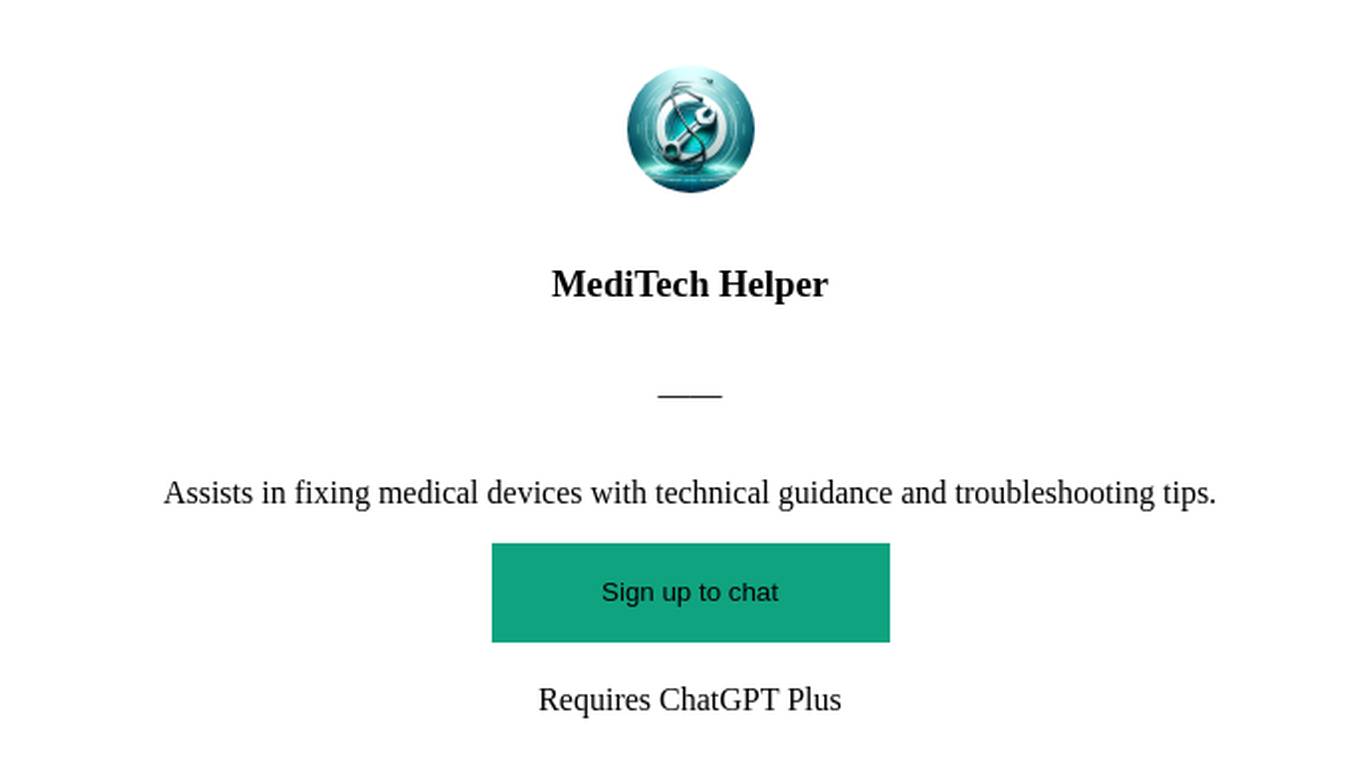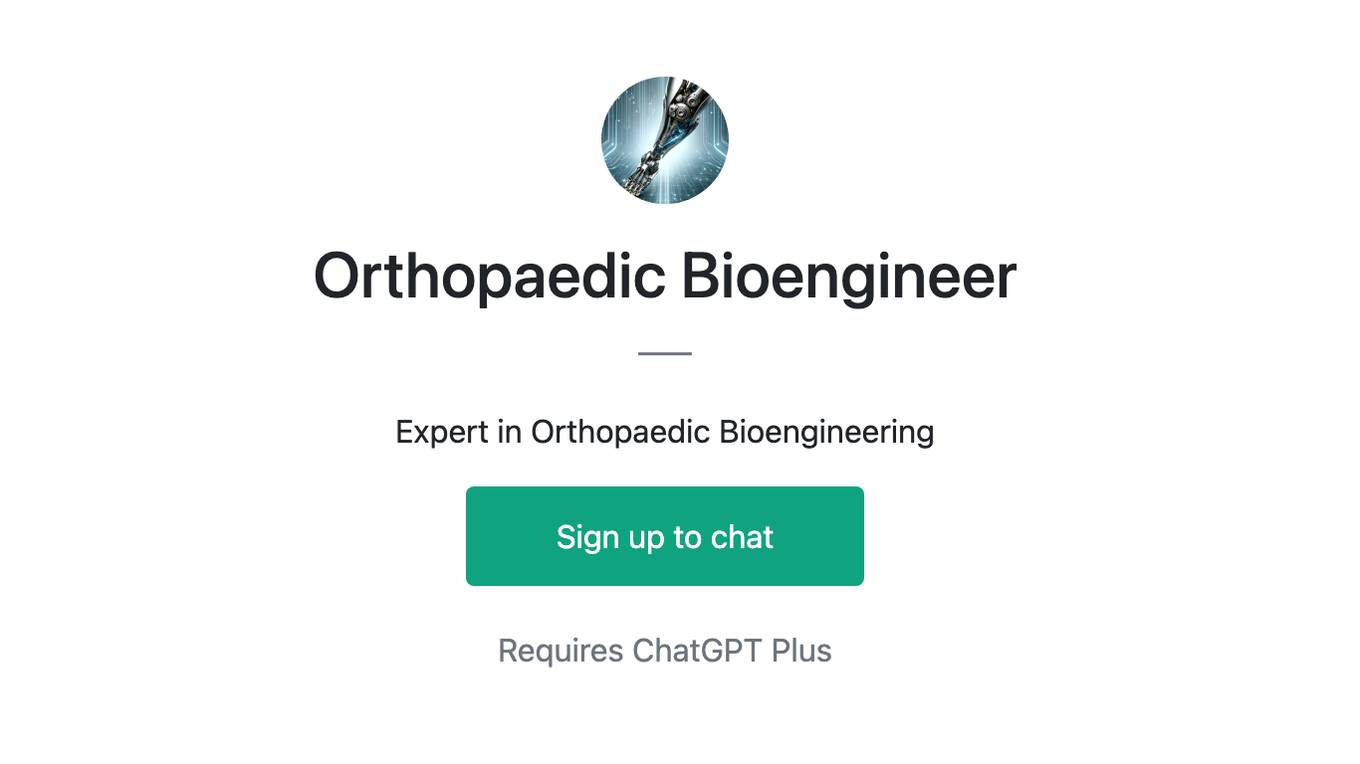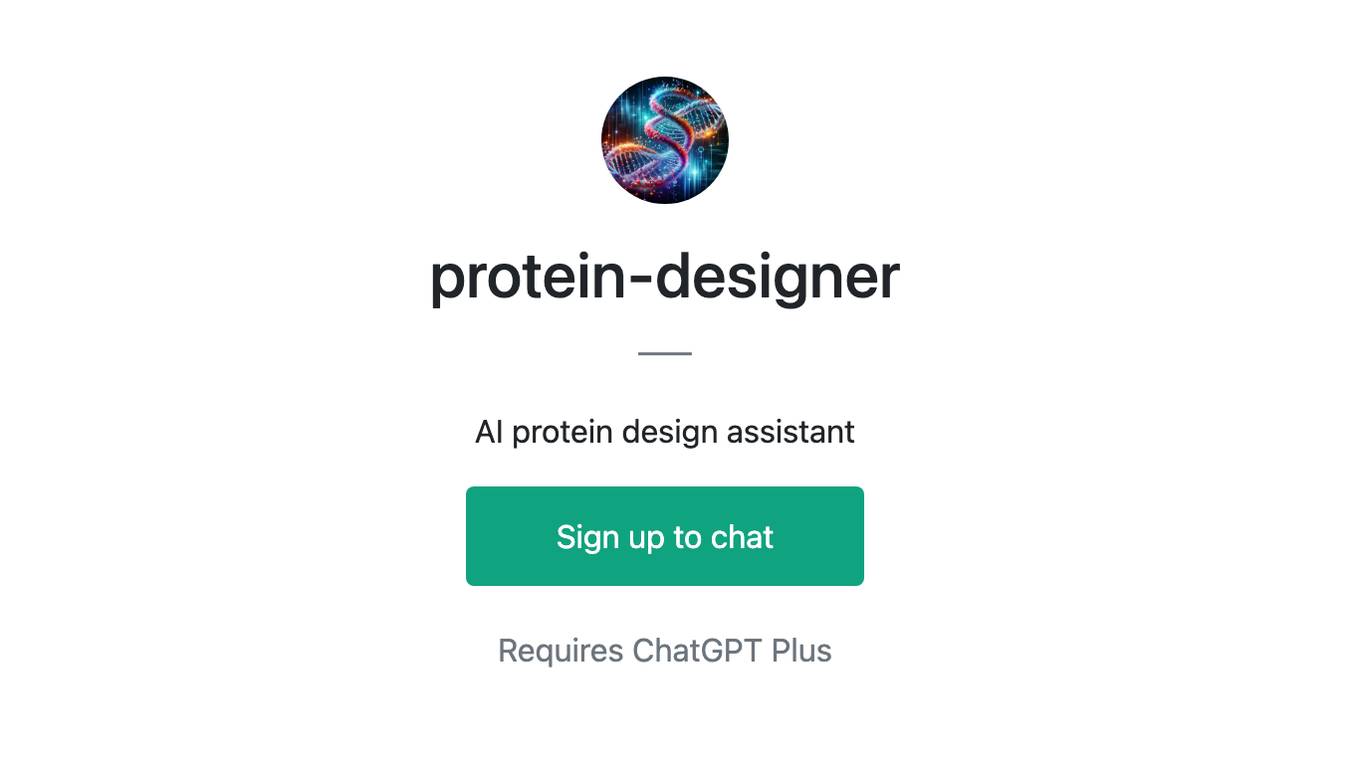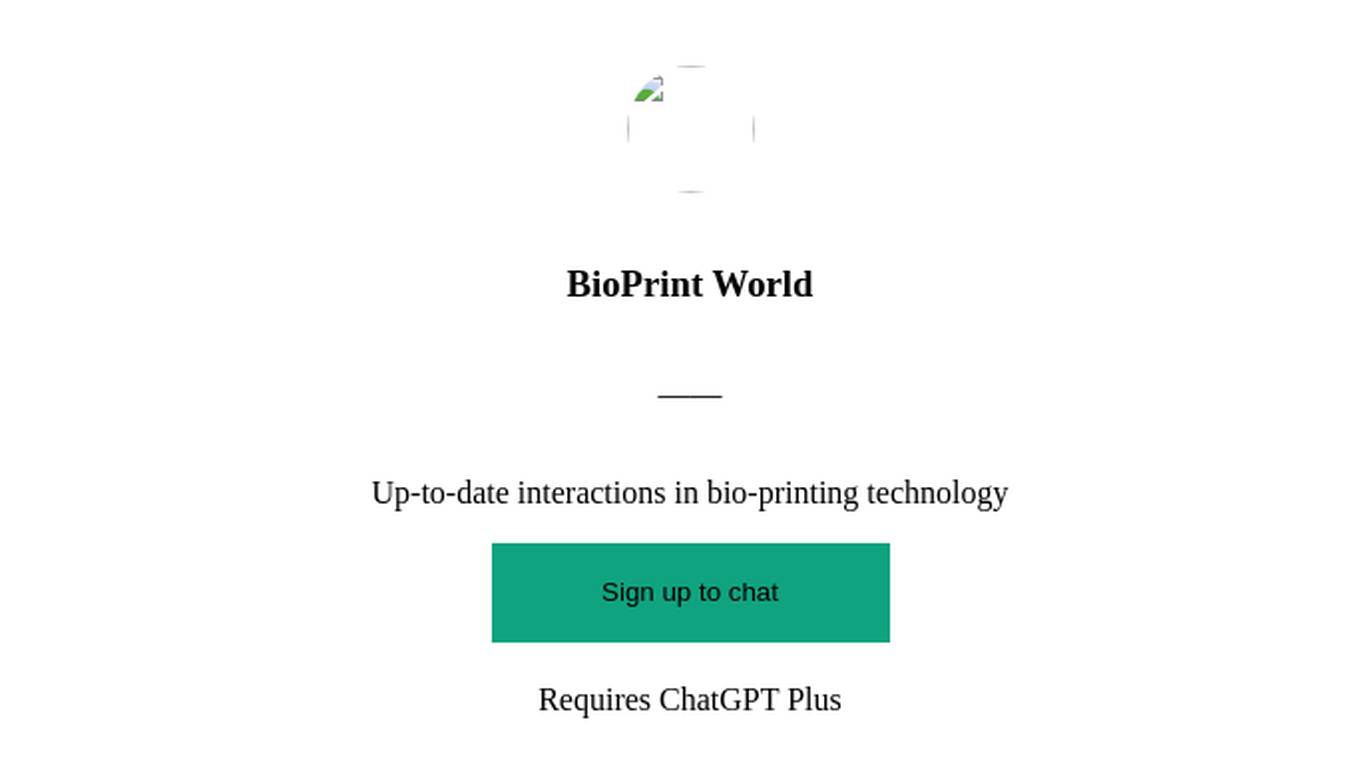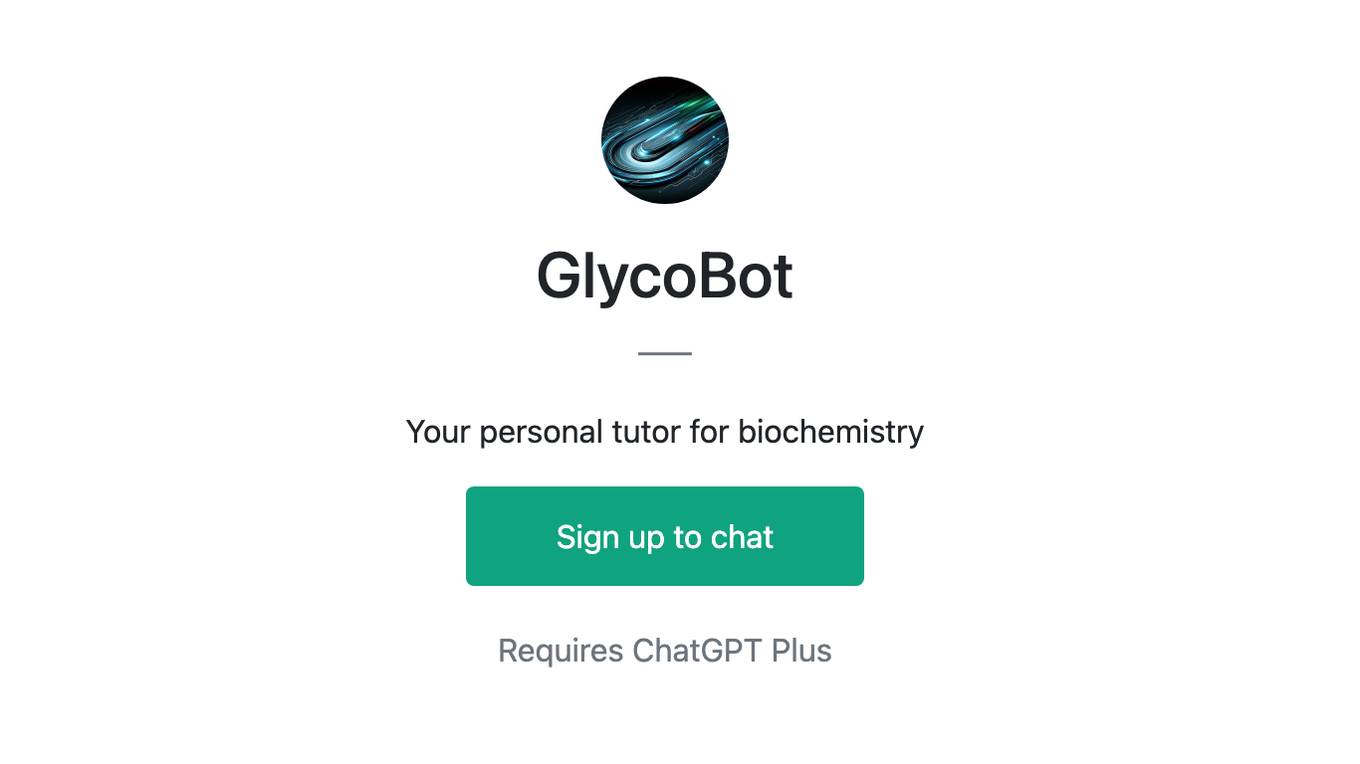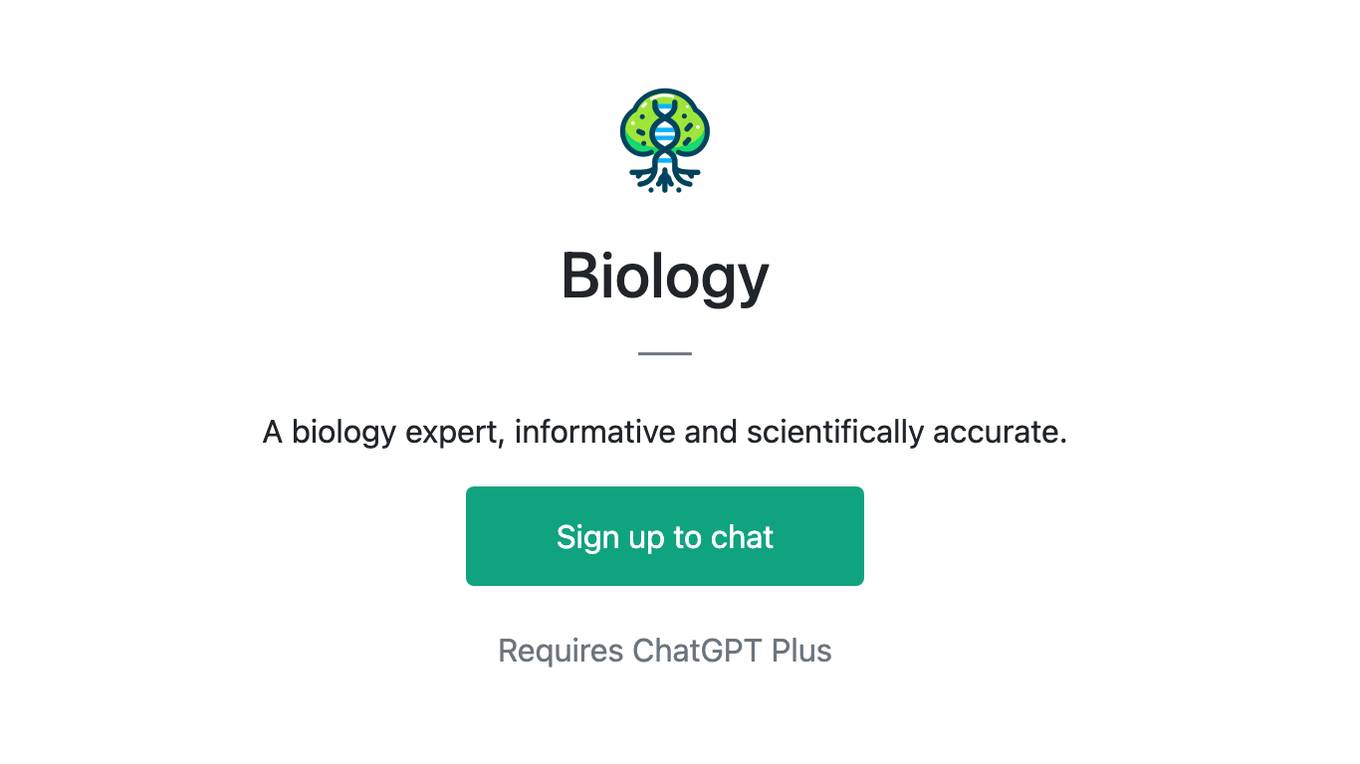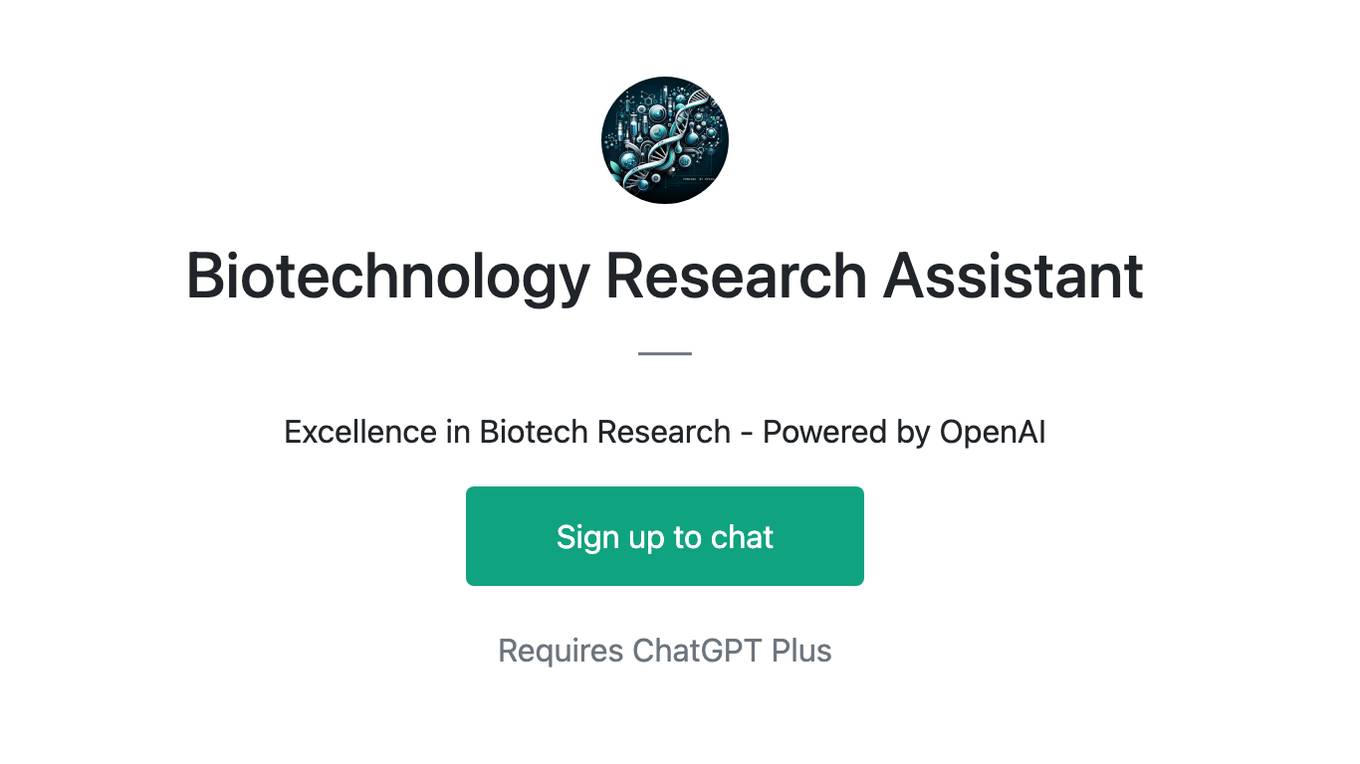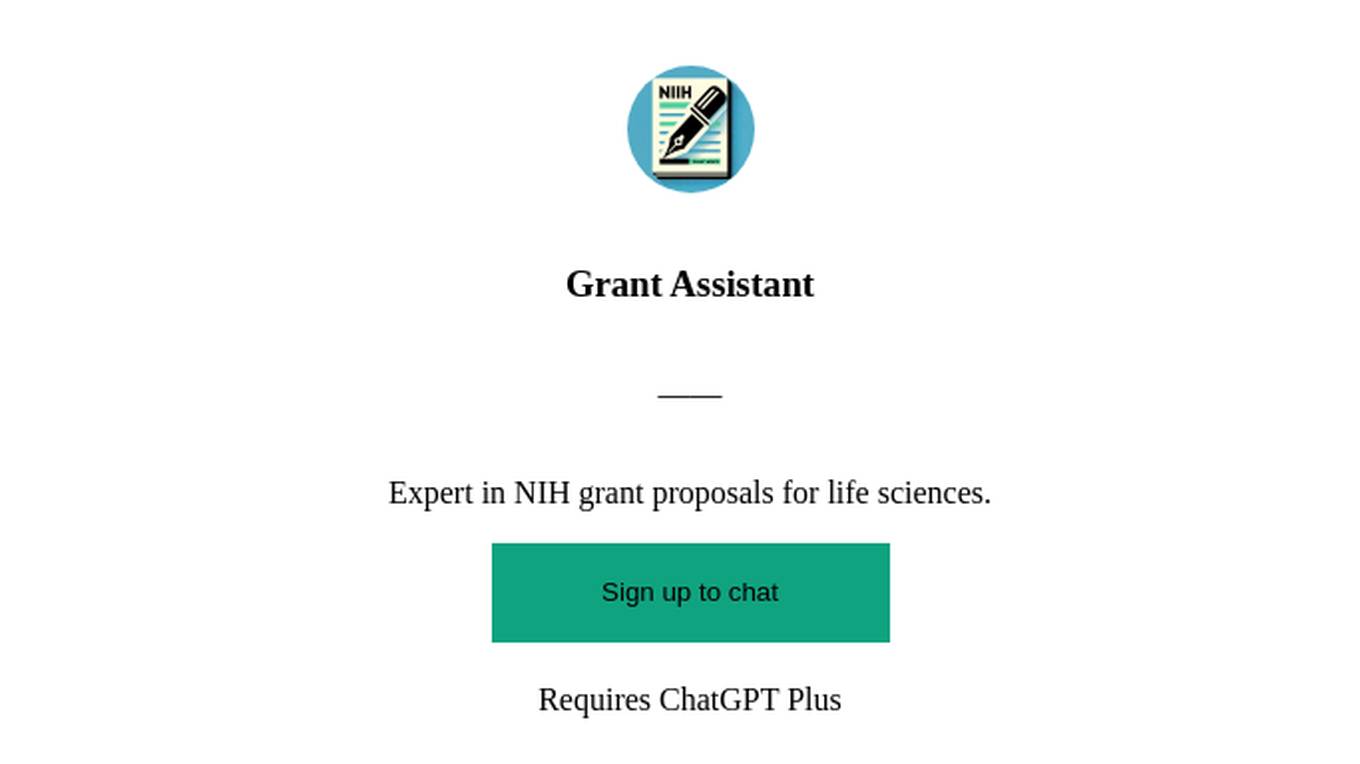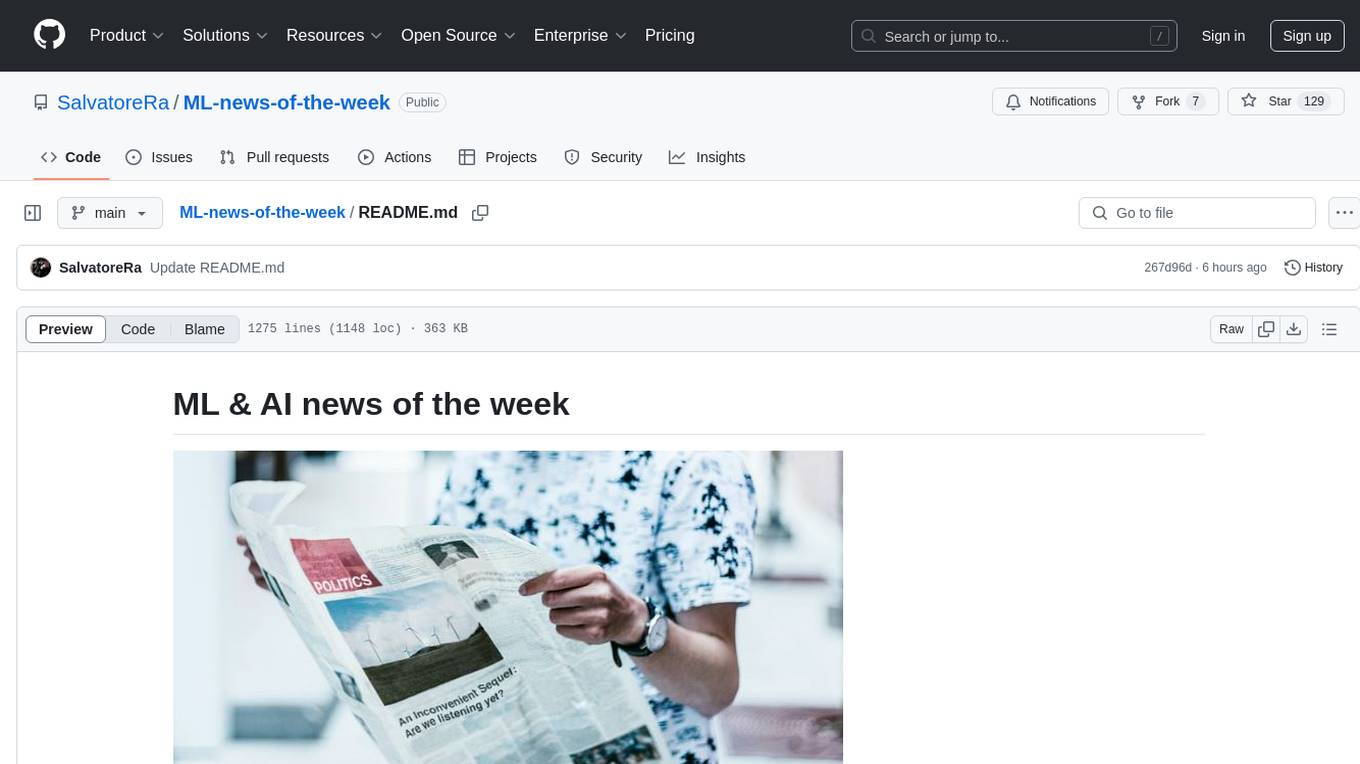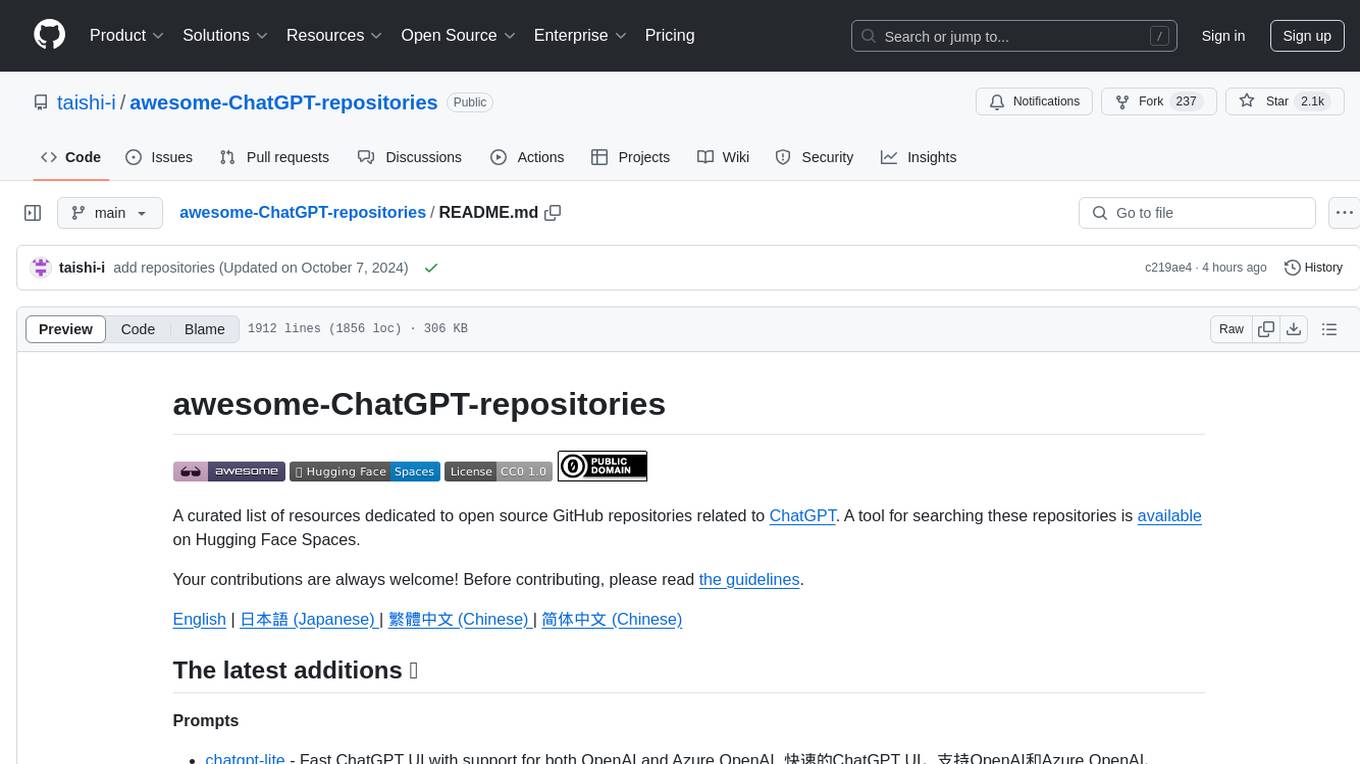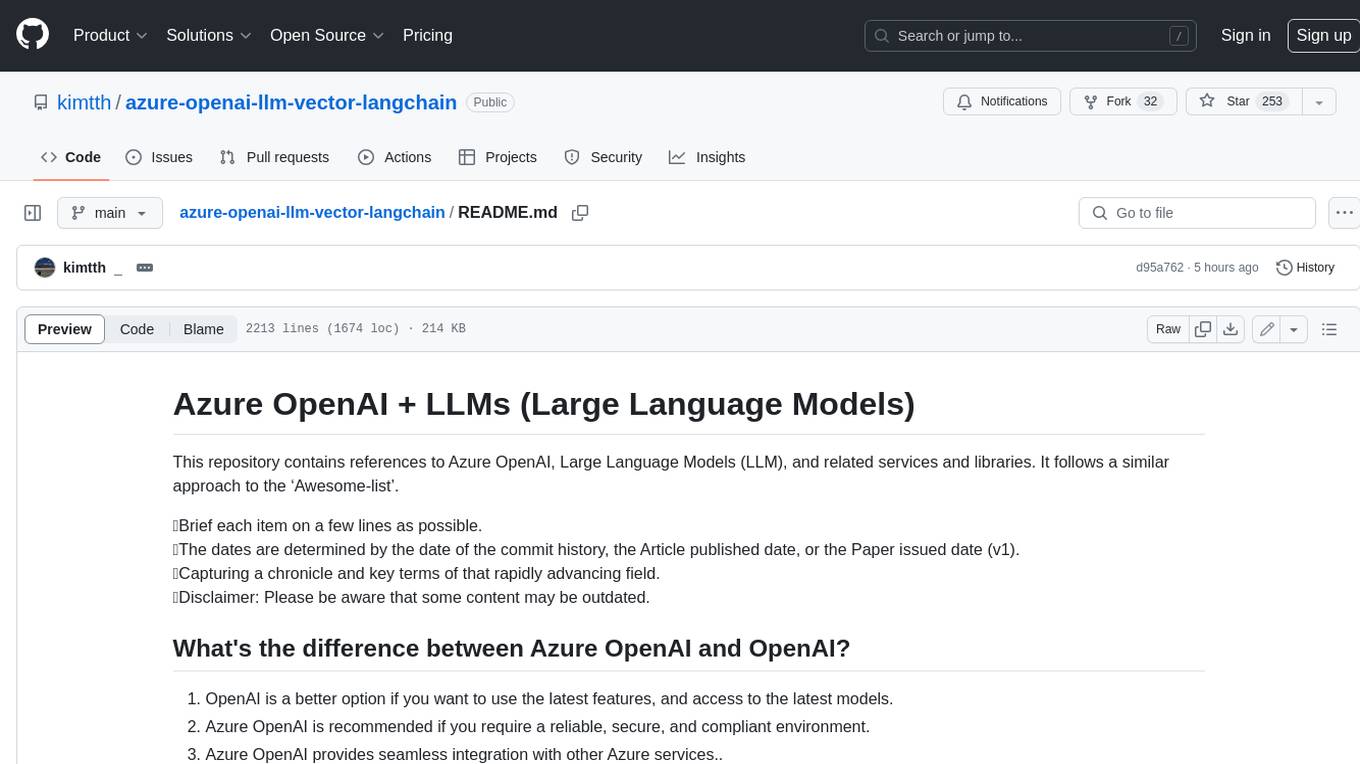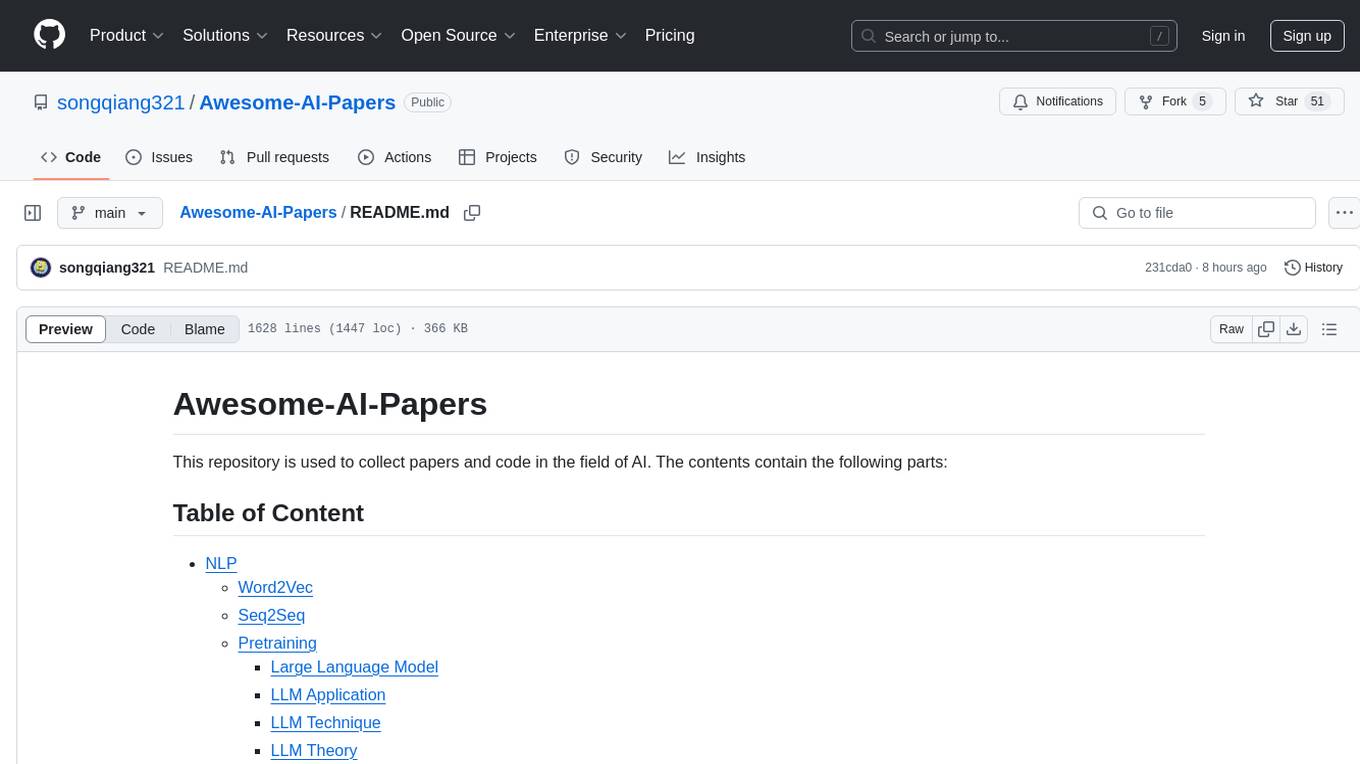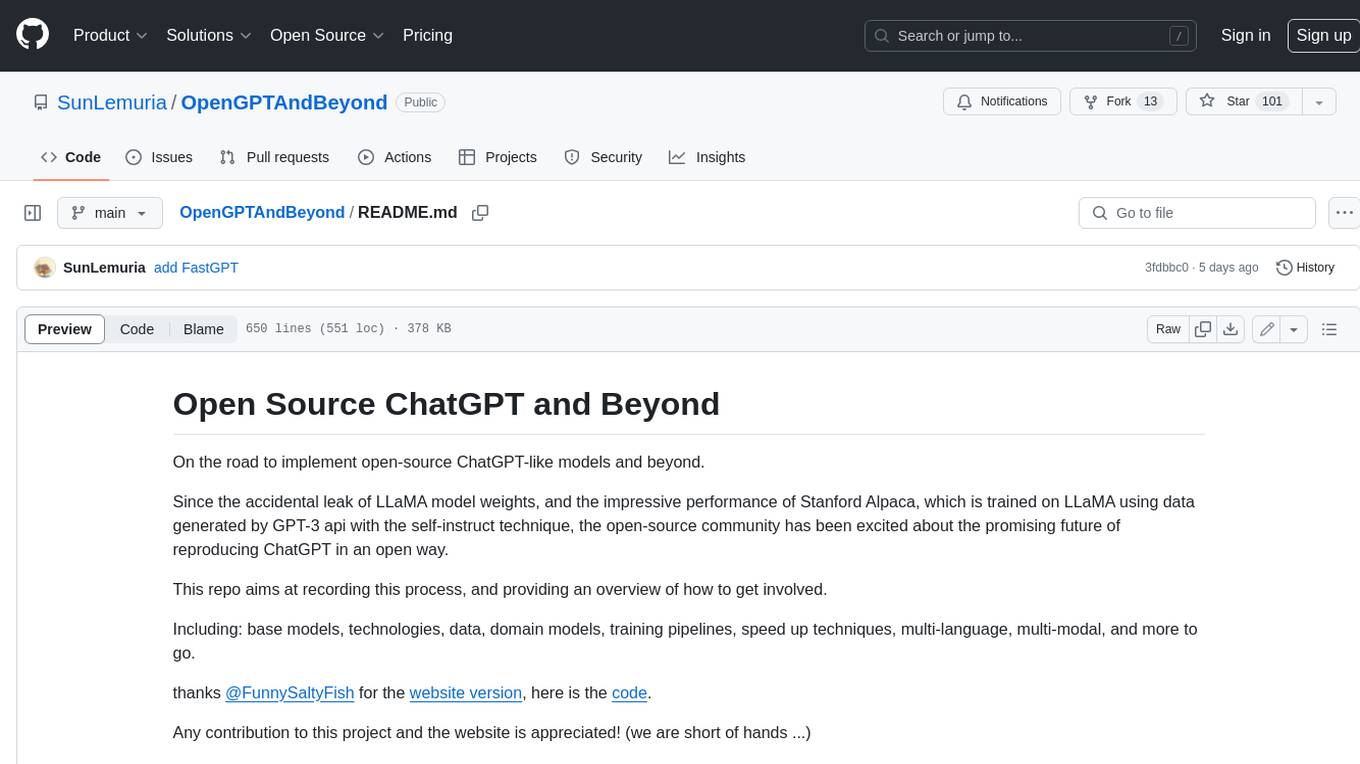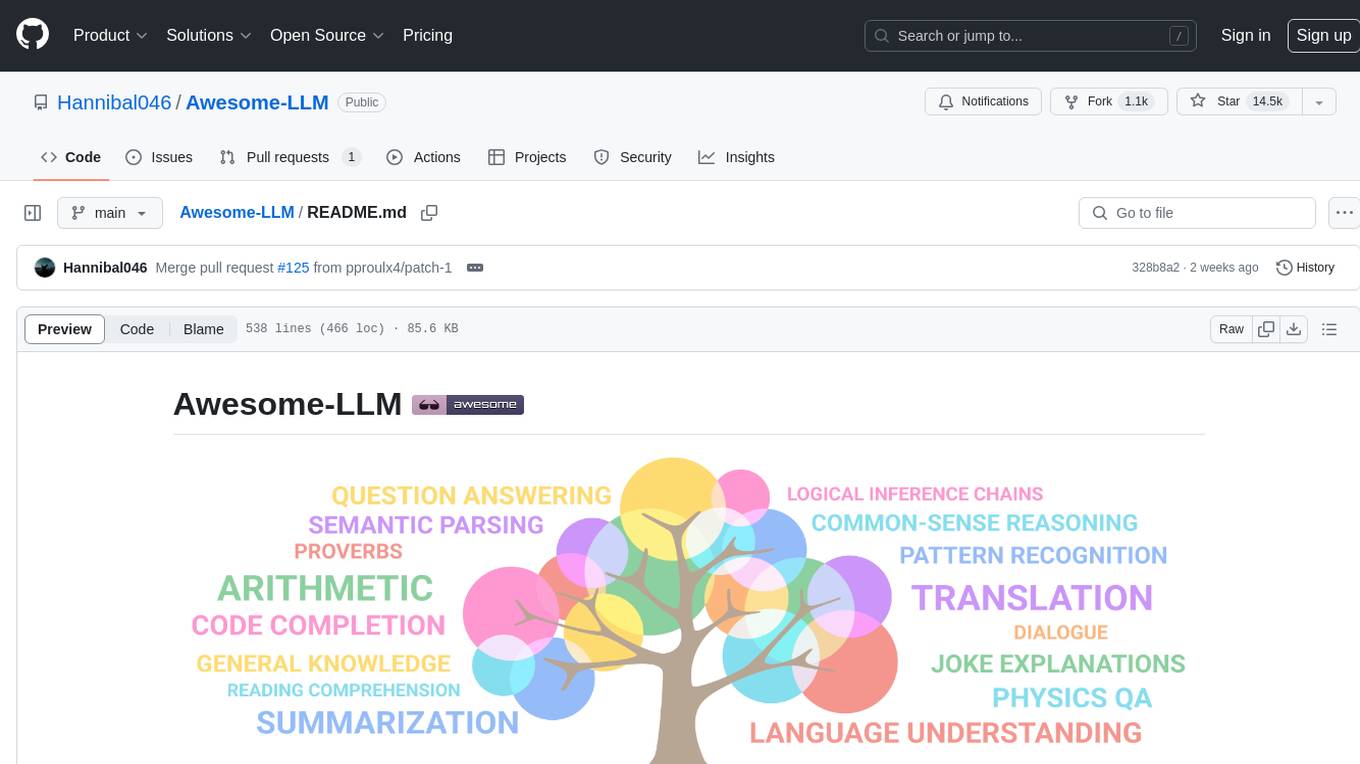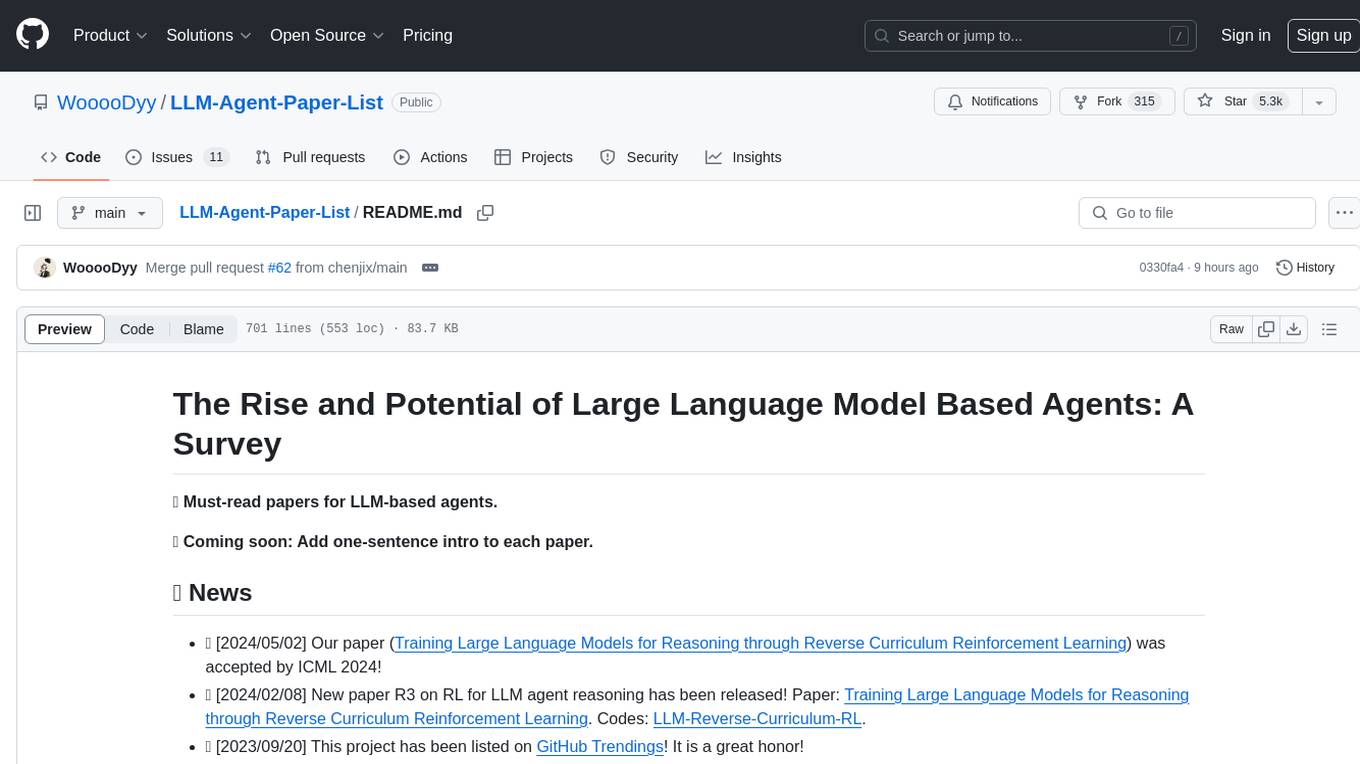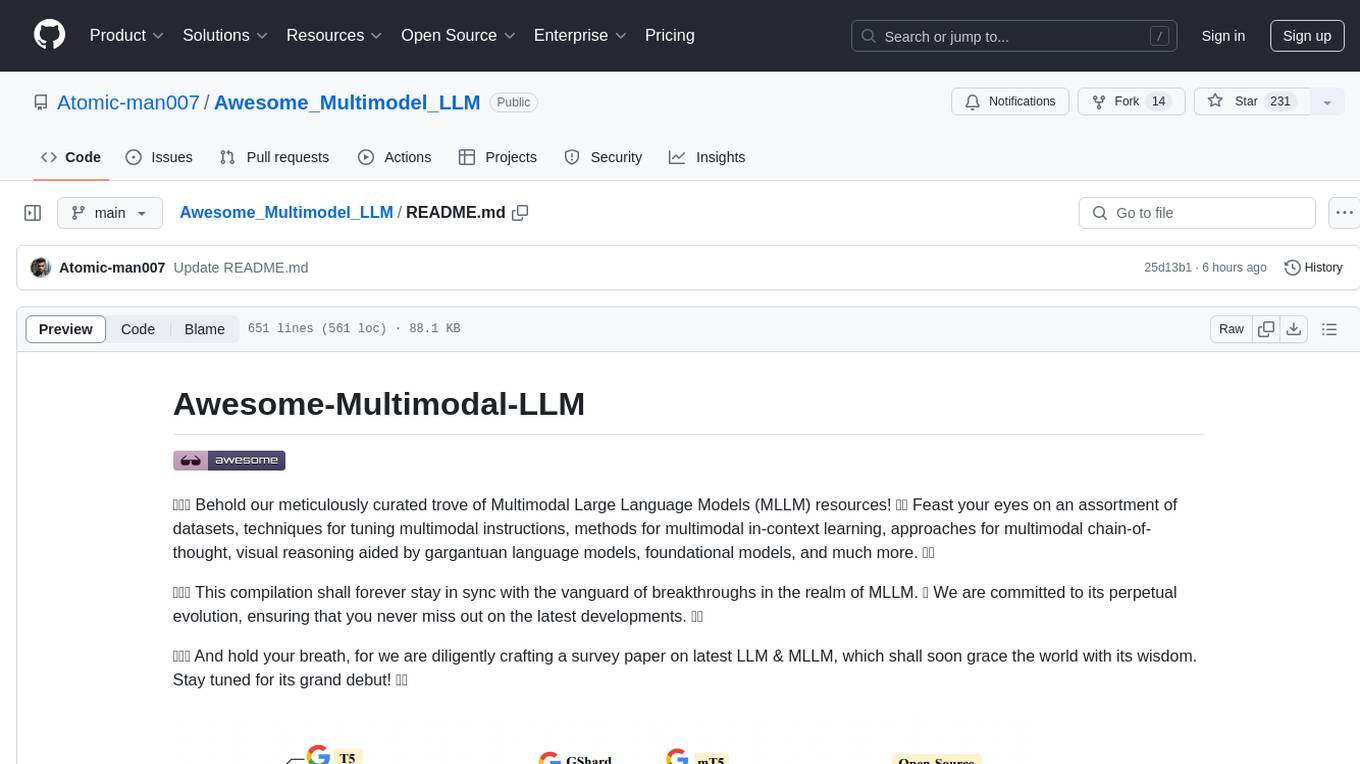AI tools for biomedical conversational AI tools
Related Tools:
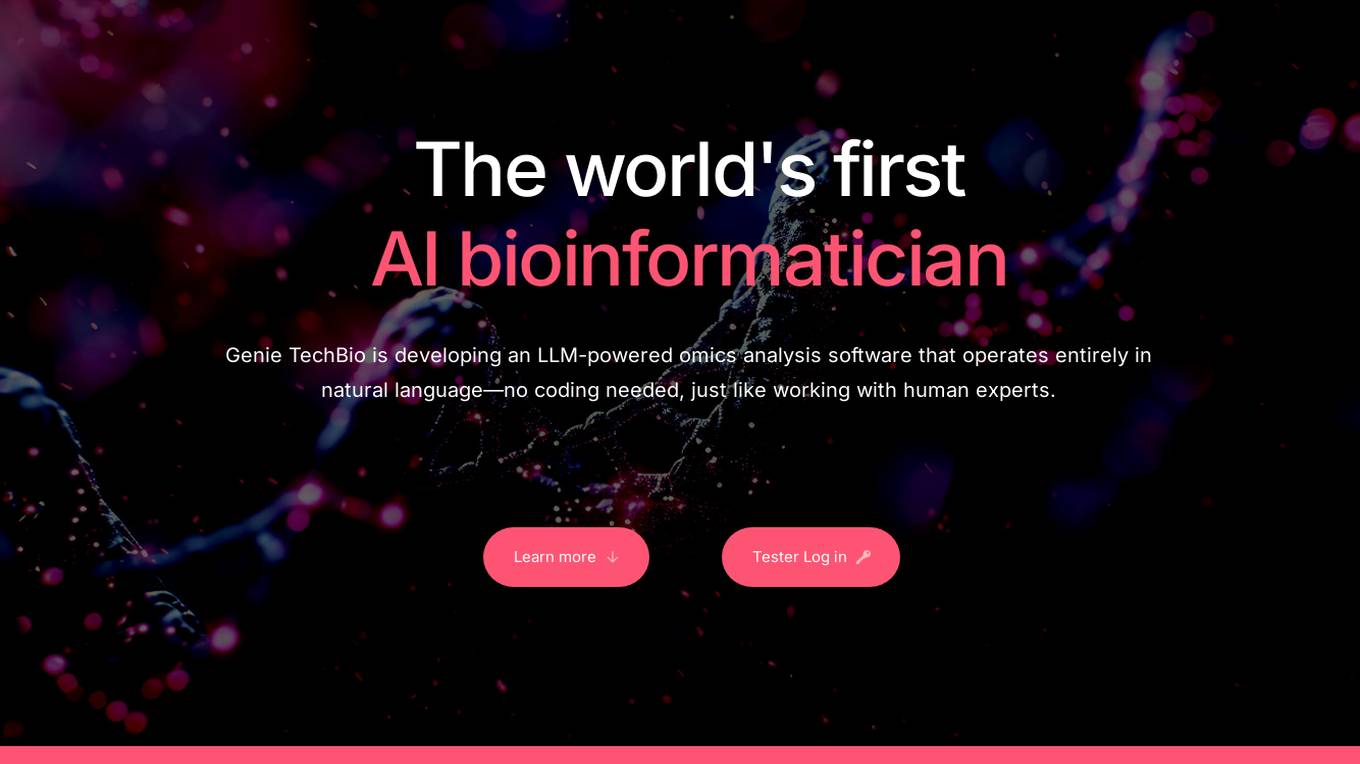
Genie TechBio
Genie TechBio is the world's first AI bioinformatician, offering an LLM-powered omics analysis software that operates entirely in natural language, eliminating the need for coding. Researchers can effortlessly analyze extensive datasets by engaging in a conversation with Genie, receiving recommendations for analysis pipelines, and obtaining results. The tool aims to accelerate biomedical research and empower scientists with newfound data analysis capabilities.
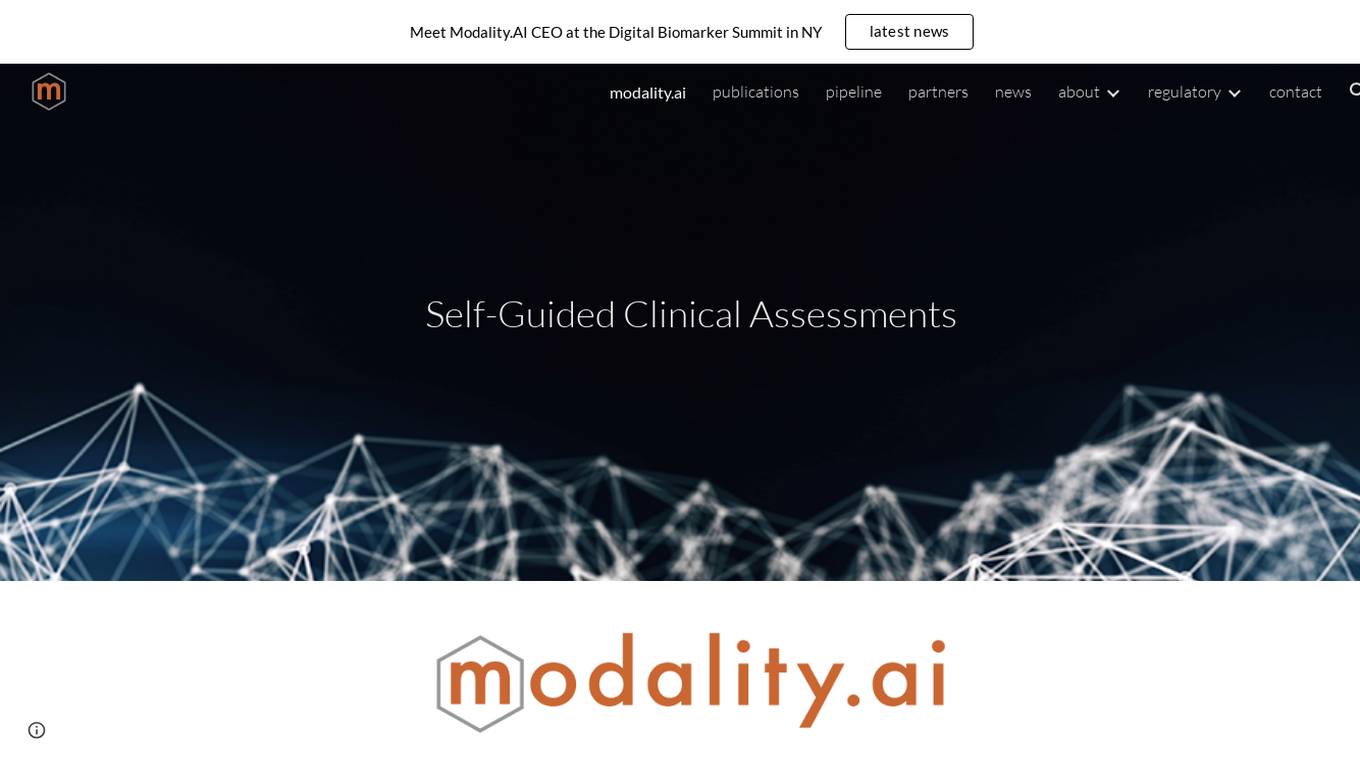
Modality.AI
Modality.AI is an AI application that has developed an automated, clinically validated system to assess neurological and psychiatric states both in clinic and remotely. The platform utilizes conversational AI to monitor conditions accurately and consistently, allowing researchers and clinicians to review data in near real-time and monitor treatment response over time. Modality.AI collaborates with world-class AI/Machine Learning experts and leading institutions to provide a HIPAA-compliant system for assessing various indications such as ALS, Parkinson's, depression, autism, Huntington's Disease, schizophrenia, and mild cognitive impairment. The platform enables convenient monitoring at home through streaming and analysis of speech and facial responses, without the need for special software or apps. Modality.AI is accessible on various devices with a browser, webcam, and microphone, offering a new approach to efficient and cost-effective clinical trials.
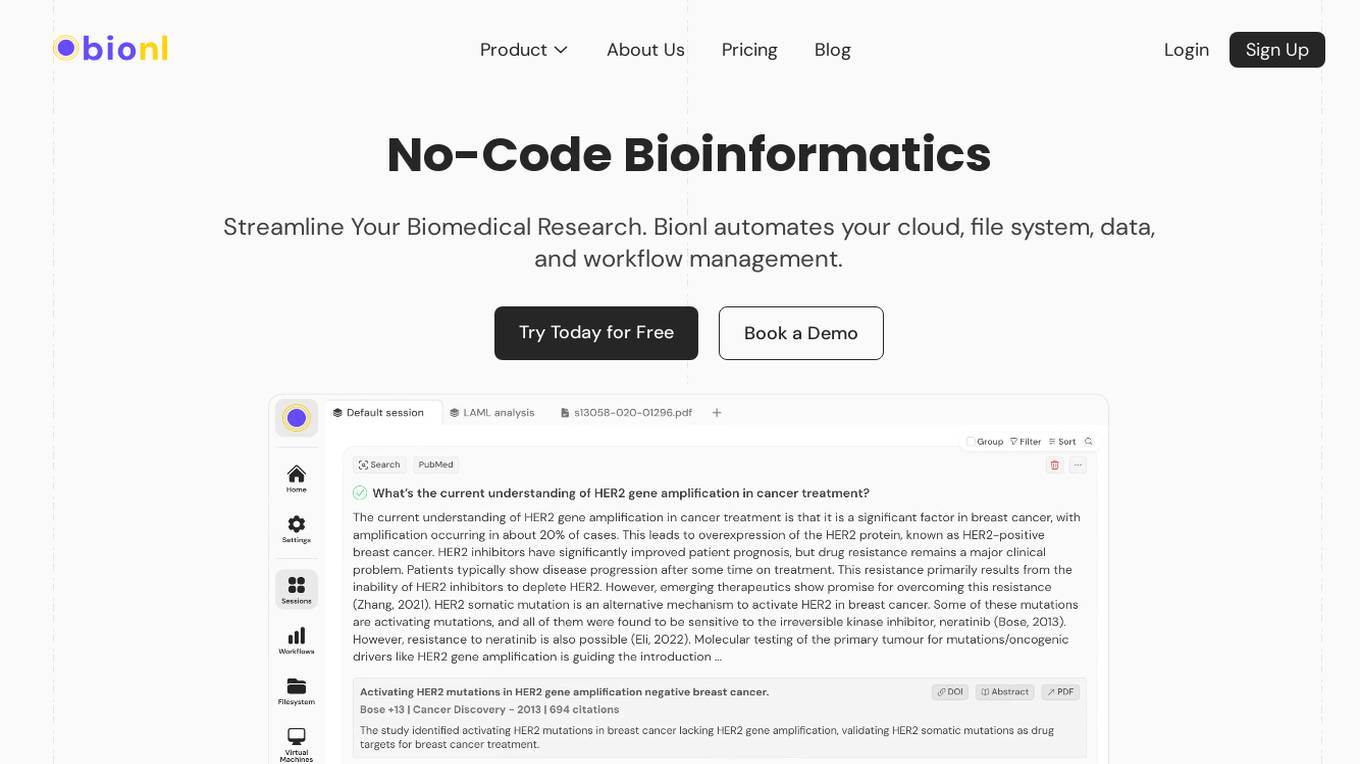
Bionl
Bionl is a no-code bioinformatics platform designed to streamline biomedical research for researchers and scientists. It offers a full workspace with features such as bioinformatics pipelines customization, GenAI for data analysis, AI-powered literature search, PDF analysis, and access to public datasets. Bionl aims to automate cloud, file system, data, and workflow management for efficient and precise analyses. The platform caters to Pharma and Biotech companies, academic researchers, and bioinformatics CROs, providing powerful tools for genetic analysis and speeding up research processes.

Exscientia
Exscientia is a technology-driven drug design and development company that combines precision design with integrated experimentation to create more effective medicines for patients faster. They operate at the interfaces of human ingenuity, artificial intelligence (AI), automation, and physical engineering, pioneering the use of AI in drug discovery. Exscientia aims to change the underlying economics of drug discovery by rapidly advancing the best scientific ideas into medicines for patients.

CBIIT
The National Cancer Institute's Center for Biomedical Informatics and Information Technology (CBIIT) provides a comprehensive suite of tools, resources, and training to support cancer data science research. These resources include data repositories, analytical tools, data standards, and training materials. CBIIT also develops and maintains the NCI Thesaurus, a comprehensive vocabulary of cancer-related terms, and the Cancer Data Standards Registry and Repository (caDSR), a repository of cancer data standards. CBIIT's mission is to accelerate the pace of cancer research by providing researchers with the tools and resources they need to access, analyze, and share cancer data.
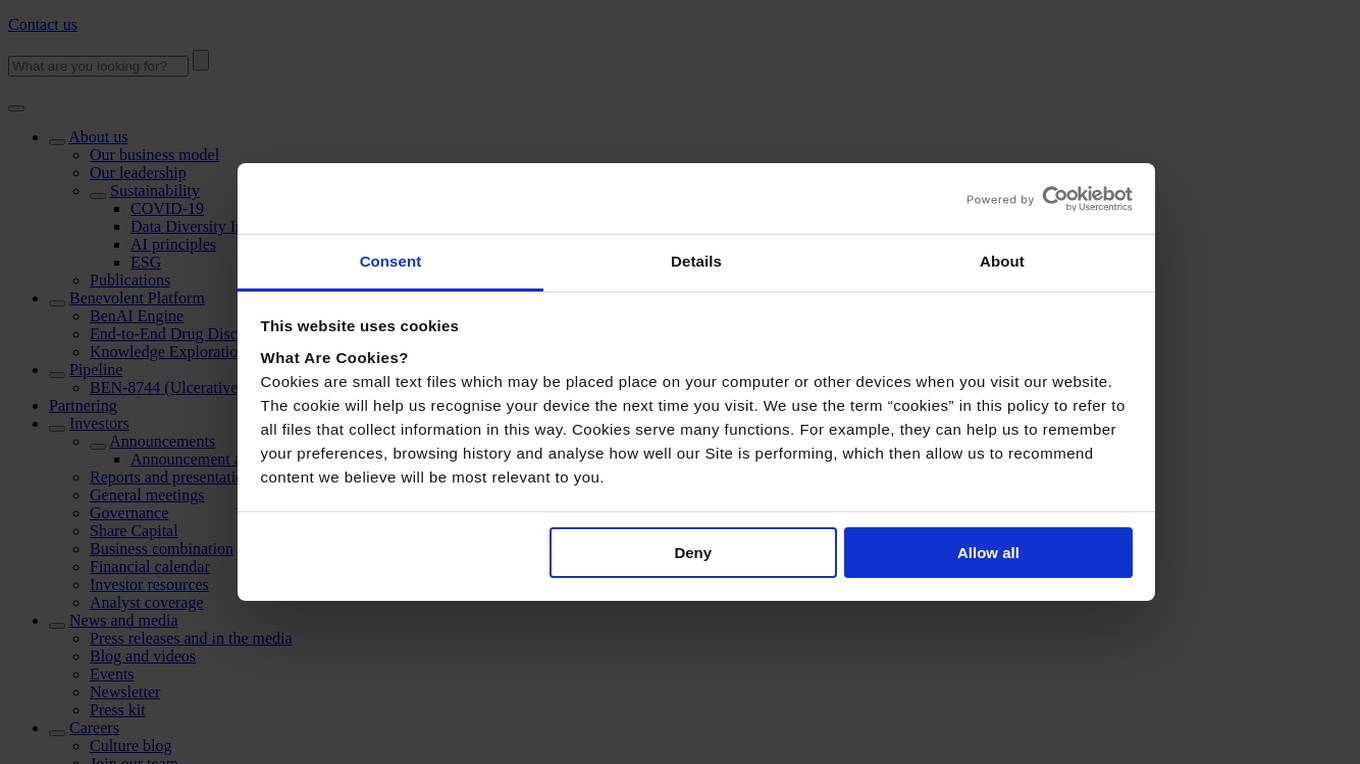
BenevolentAI
BenevolentAI is a leader in applying advanced AI to accelerate biopharma drug discovery blending science and technology with a focus on finding solutions for complex diseases. We empower both biopharmaceutical companies and our internal scientists to harness the full potential of data and AI to accelerate the next generation of scientific advances. We have built our AI-enabled drug discovery engine to drive a revolution in drug discovery. The Benevolent Platform™ unlocks the power of a vast biomedical data landscape to provide a multidimensional representation of human biology across all diseases. We believe this approach will improve the probability of clinical success, and help us deliver life-changing treatments to patients – because it matters.

Activeloop
Activeloop is an AI tool that offers Deep Lake, a database for AI solutions across various industries such as agriculture, audio processing, autonomous vehicles, robotics, biomedical and healthcare, generative AI, multimedia, safety, and security. The platform provides features like fast AI search, faster data preparation, serverless DB for code assistant, and more. Activeloop aims to streamline data processing and enhance AI development for businesses and researchers.
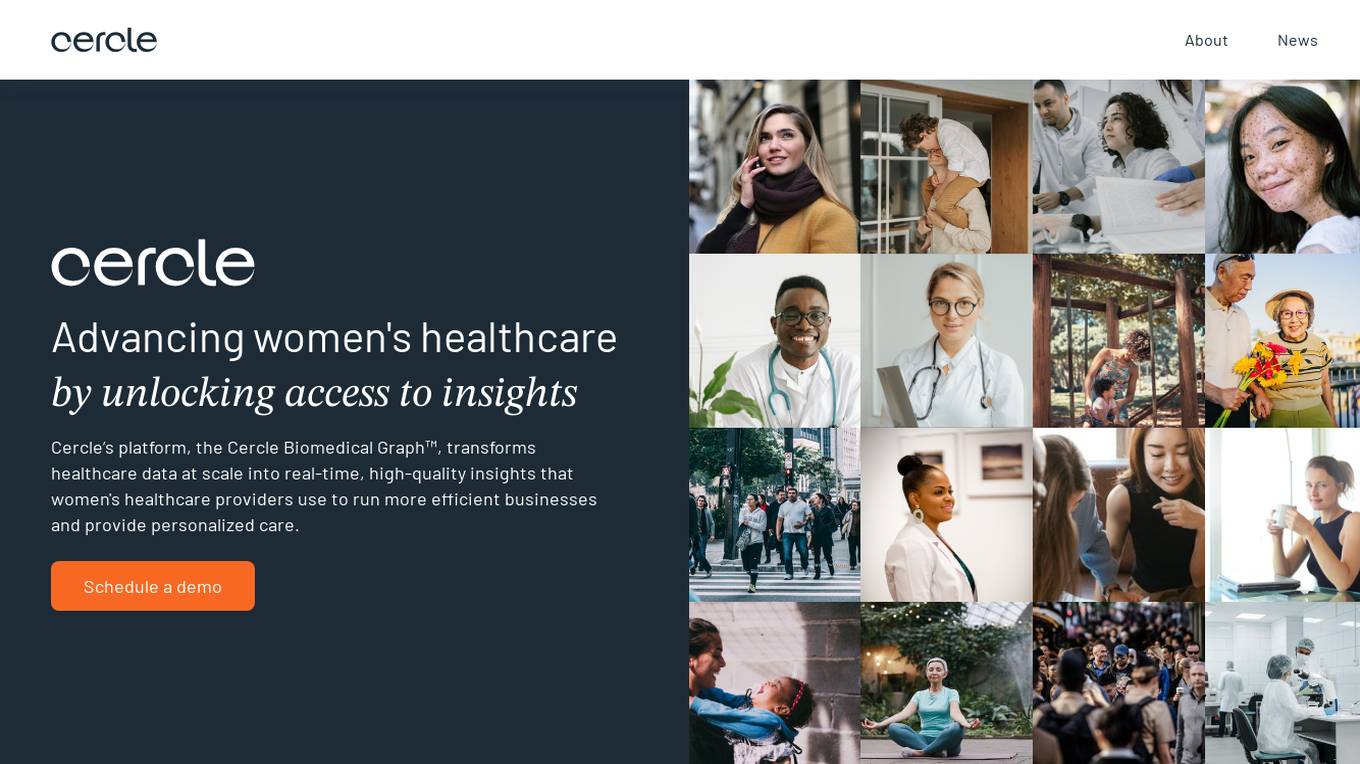
Cercle
Cercle is an AI platform that advances healthcare for women by transforming healthcare data into real-time, high-quality insights. The platform caters to women's healthcare providers, payors, and pharma companies, helping them run more efficient businesses and provide personalized care. Cercle's Biomedical Graph unlocks insights at unprecedented speed and accuracy, optimizing patient care and improving outcomes in areas such as assisted reproduction and fertility processes.
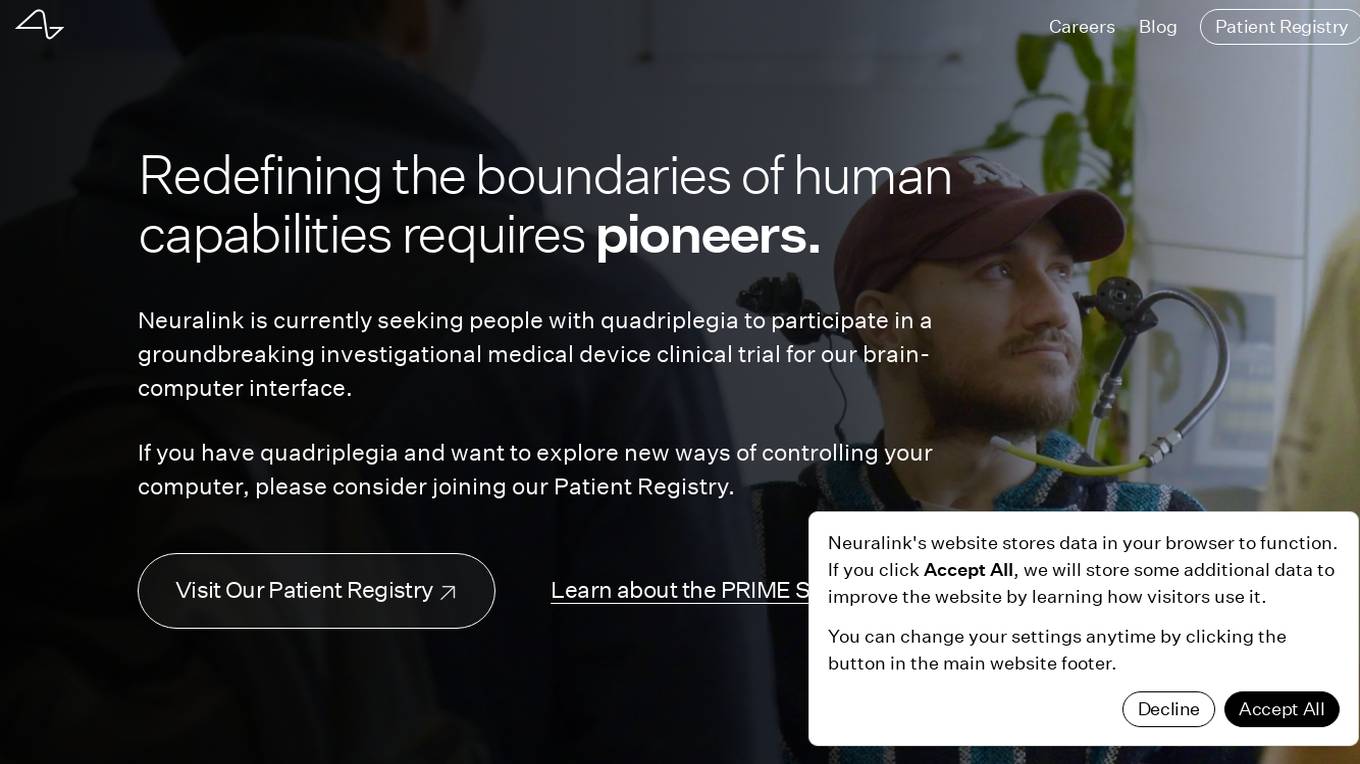
Neuralink
Neuralink is a pioneering brain-computer interface (BCI) application that aims to redefine human capabilities by creating a generalized brain interface to restore autonomy to individuals with unmet medical needs. The application focuses on developing fully implantable BCIs that allow users, particularly those with quadriplegia, to control computers and mobile devices using their thoughts. Neuralink's innovative technology includes advanced chips, biocompatible enclosures, and surgical robots for precise implantation. The application prioritizes safety, accessibility, and reliability in its engineering process, with future goals of restoring vision, motor function, and speech capabilities.
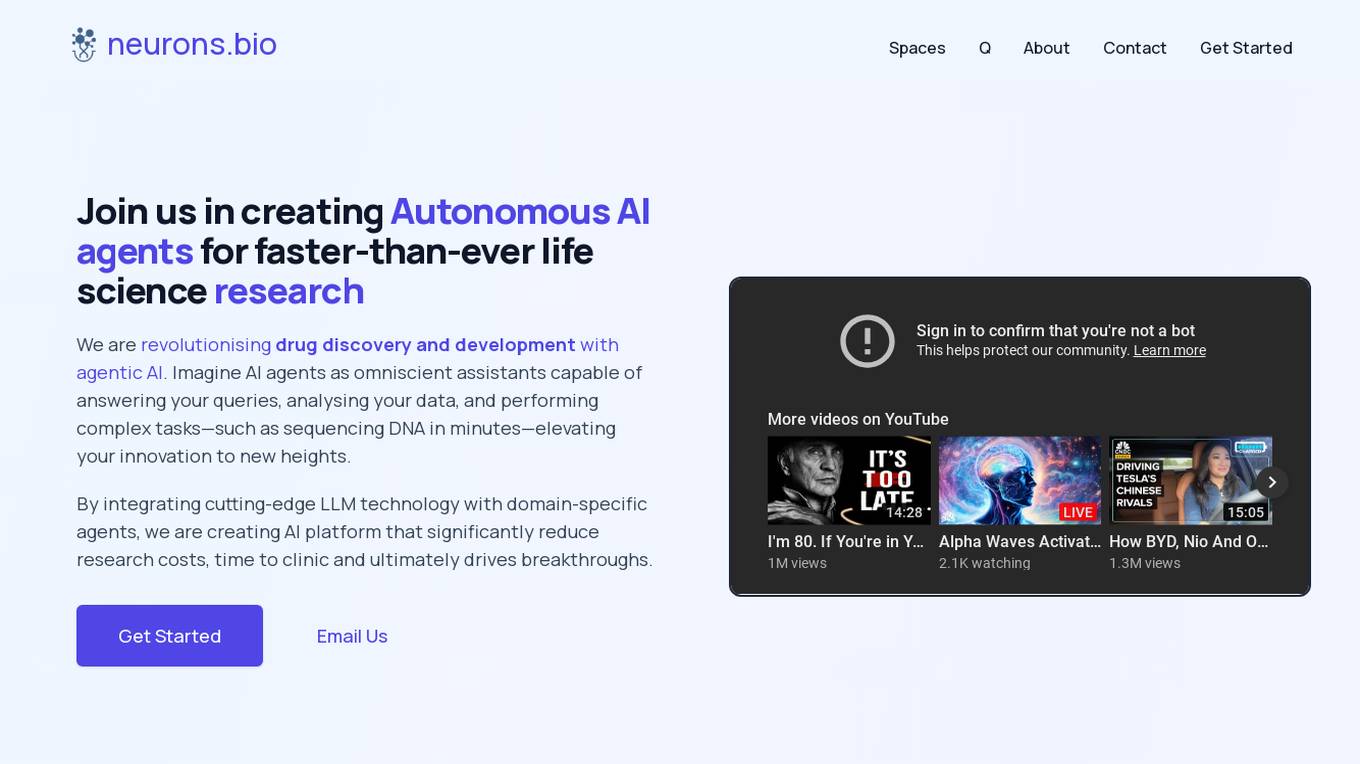
neurons.bio
neurons.bio is an AI application that offers a unique collection of over 100 AI agents designed for drug development, medicine, and life science research. These agents perform specific tasks efficiently, retrieve data from various sources, and provide insights to accelerate research processes. The platform aims to revolutionize drug discovery and development by integrating cutting-edge LLM technology with domain-specific agents, reducing research costs and time to clinic.
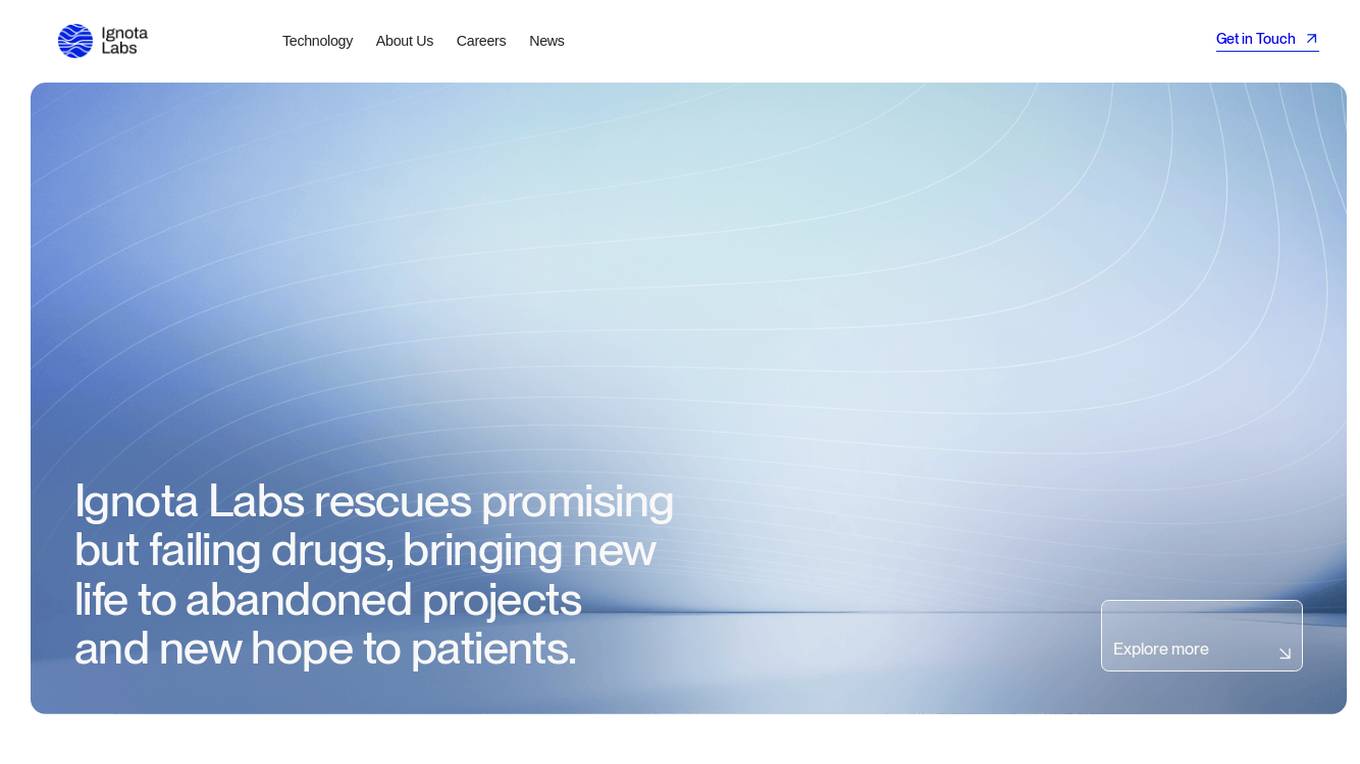
Ignota Labs
Ignota Labs is a technology company focused on rescuing failing drugs and bringing new life to abandoned projects, ultimately providing hope to patients. The company utilizes a proprietary AI model, SAFEPATH, which applies deep learning to bioinformatics and cheminformatics datasets to solve drug safety issues. Ignota Labs aims to identify promising drug targets, address safety problems in clinical trials, and accelerate the delivery of therapeutically effective drugs to patients.
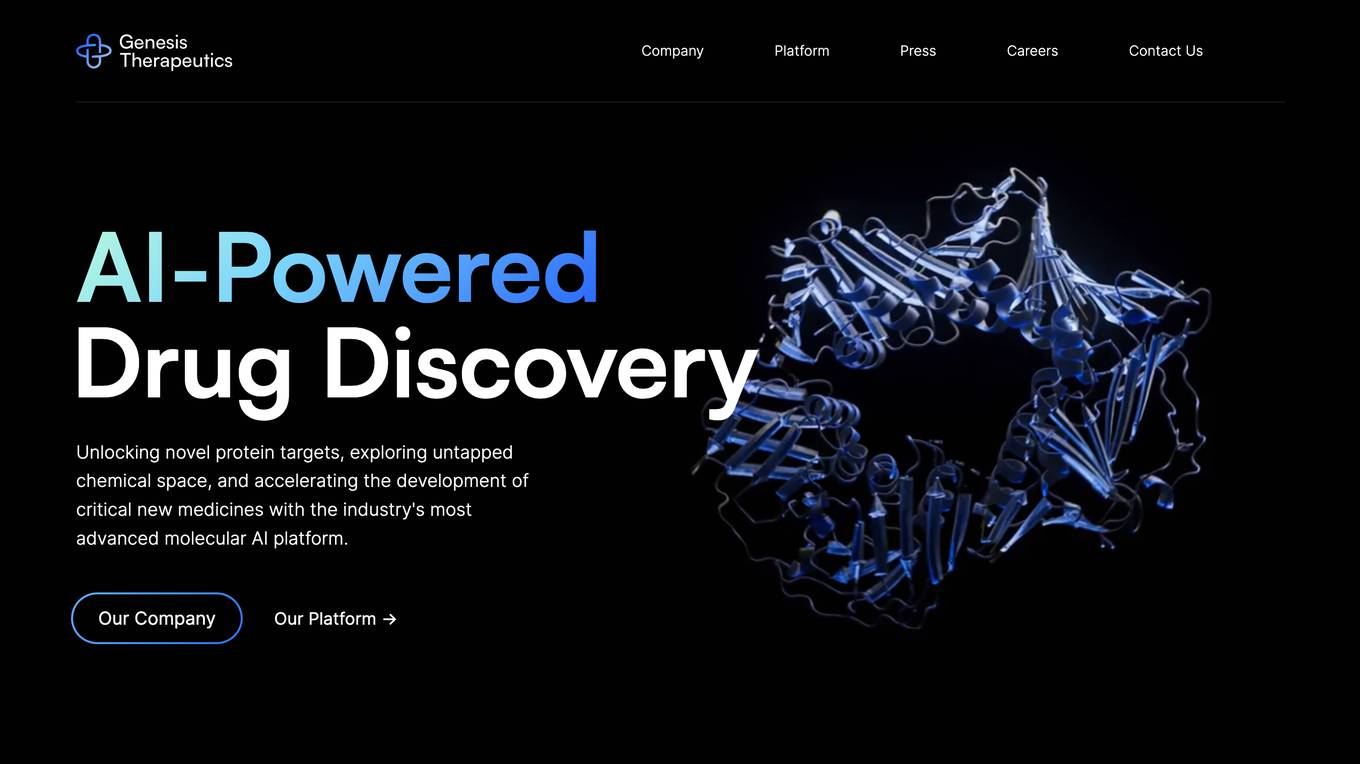
Genesis Therapeutics
Genesis Therapeutics is an AI platform that leverages cutting-edge technology to revolutionize drug discovery and development processes. The platform integrates advanced algorithms and machine learning models to accelerate the identification of novel drug candidates and optimize their properties. By combining computational simulations with experimental data, Genesis Therapeutics offers a comprehensive solution to streamline the drug development pipeline and bring innovative therapies to market faster. The platform is designed to empower researchers and pharmaceutical companies with powerful tools for predicting drug-target interactions, optimizing molecular structures, and prioritizing lead compounds for further investigation.
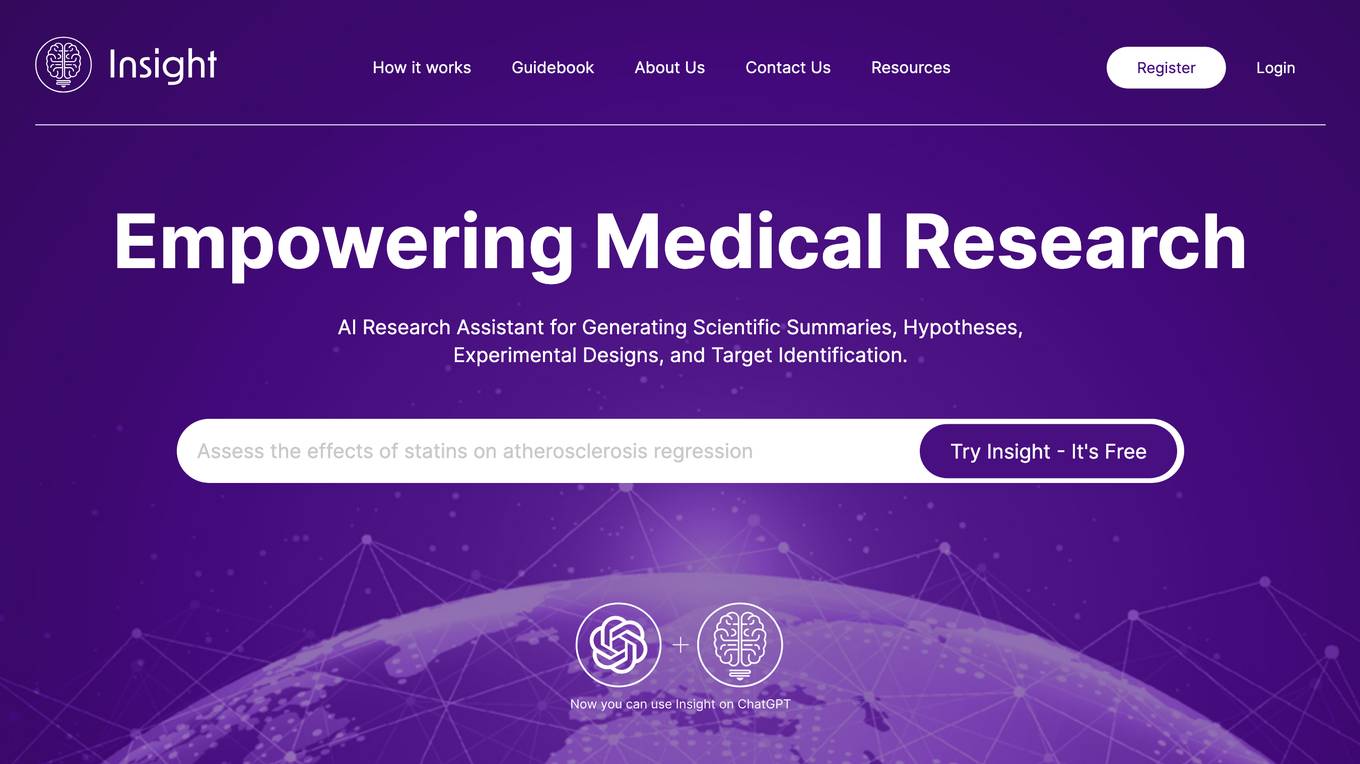
Insight
Insight is an AI-powered medical research tool that serves as a research assistant for generating scientific summaries, hypotheses, experimental designs, and target identification. It empowers scientists to navigate literature, formulate hypotheses, and design experiments by utilizing peer-reviewed databases to provide reliable outputs. With integrated features like NIH PubMed access, NIH Reporter insights, and MYGENE & MYVARIANT deep dives, Insight streamlines the research process and accelerates discoveries in the medical field.
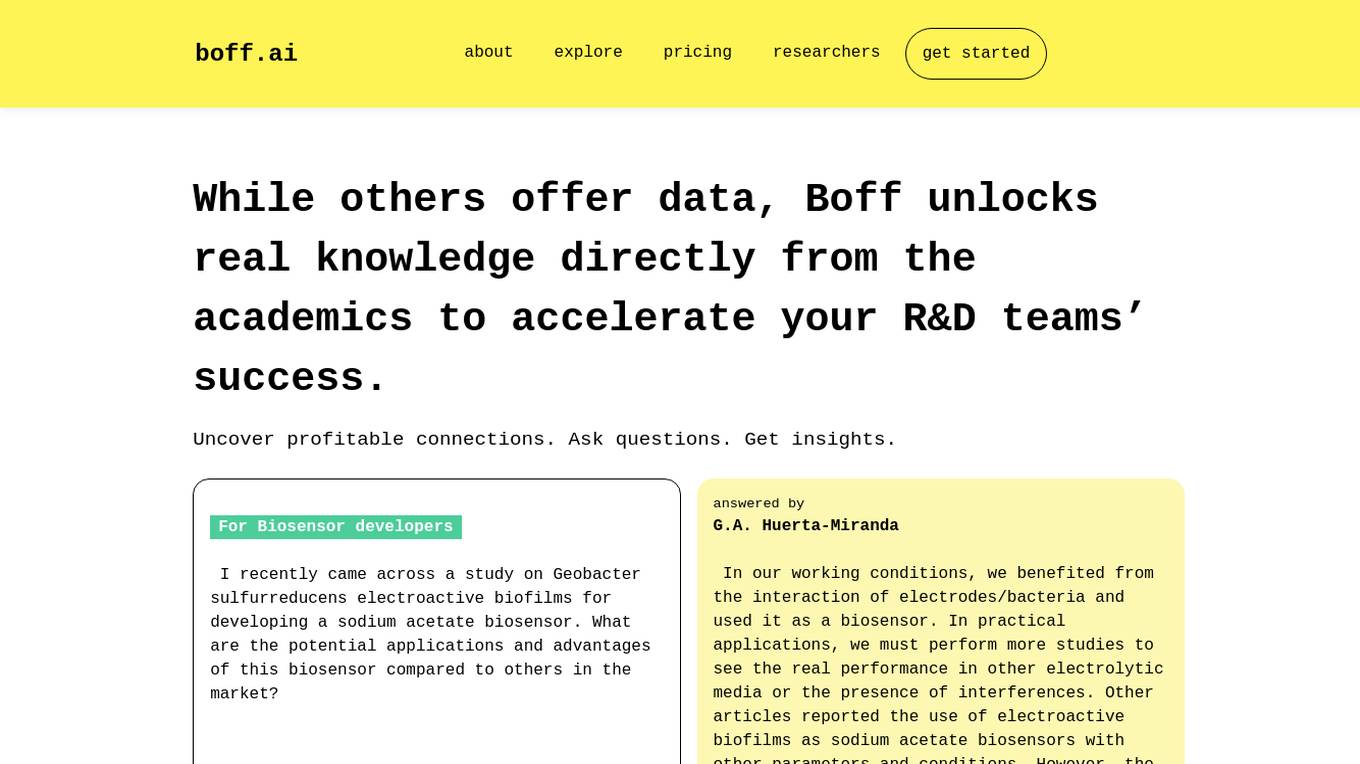
Boff.ai
Boff.ai is an AI tool that connects professionals with academia to unlock opportunities and funding for research and development teams. It helps users ask specific questions across various topics and sources replies from experts in the field. The platform ensures privacy and focuses on solutions required, making it a trusted resource for 30,000 academics and R&D professionals.
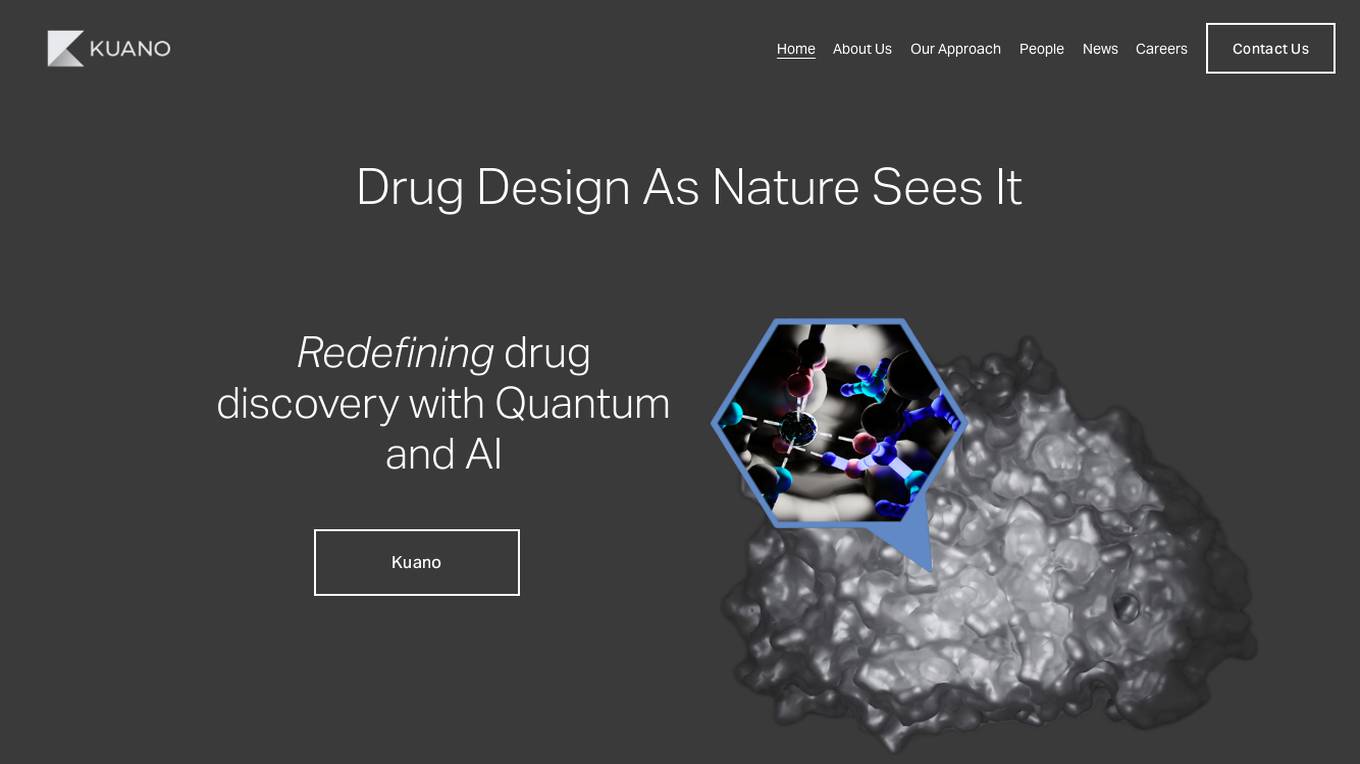
Kuano
Kuano is an AI tool that focuses on redefining drug discovery using Quantum and AI technologies. The platform offers world-class scientific expertise in quantum physics, AI, and medicinal chemistry to revolutionize the drug design process. Kuano aims to leverage cutting-edge technologies to accelerate the discovery of new drugs and improve healthcare outcomes.
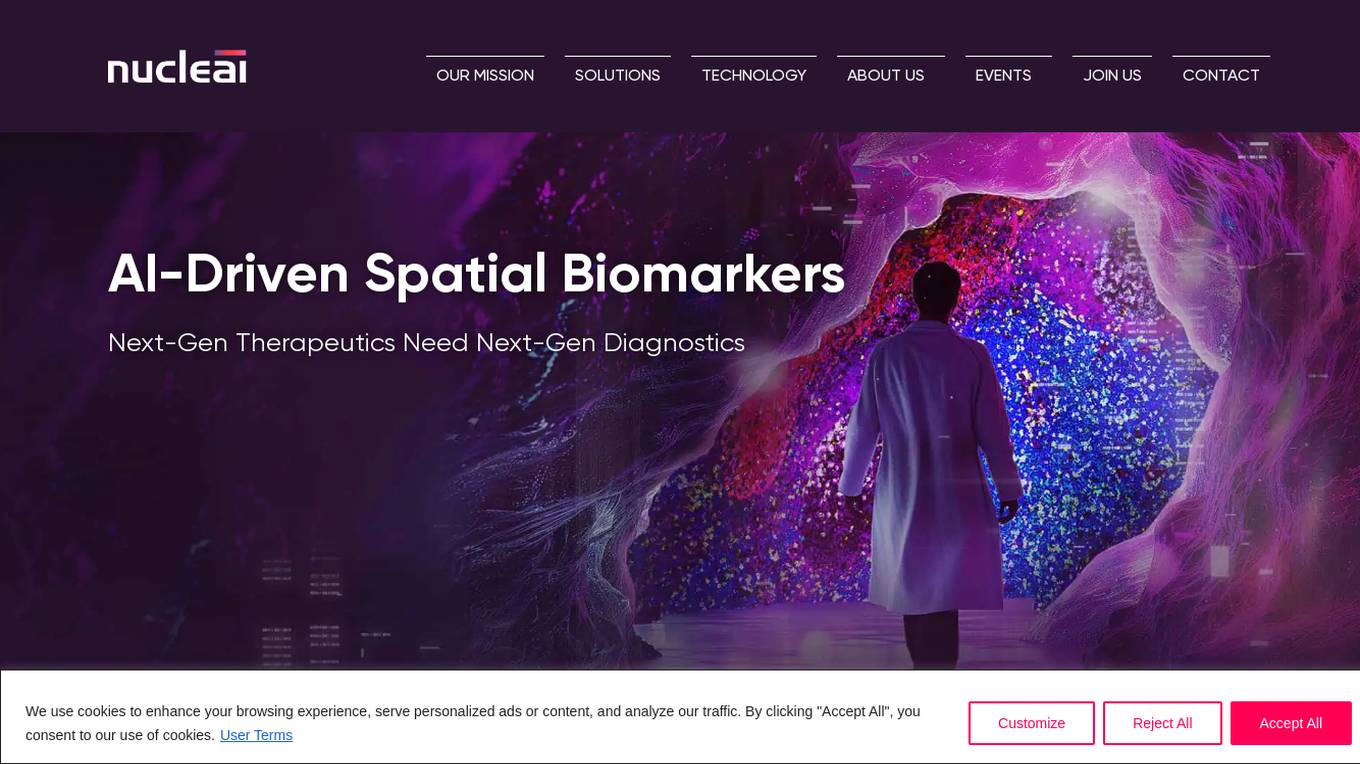
Nucleai
Nucleai is an AI-driven spatial biomarker analysis tool that leverages military intelligence-grade geospatial AI methods to analyze complex cellular interactions in a patient's biopsy. The platform offers a first-of-its-kind multimodal solution by ingesting images from various modalities and delivering actionable insights to optimize biomarker scoring, predict response to therapy, and revolutionize disease diagnosis and treatment.
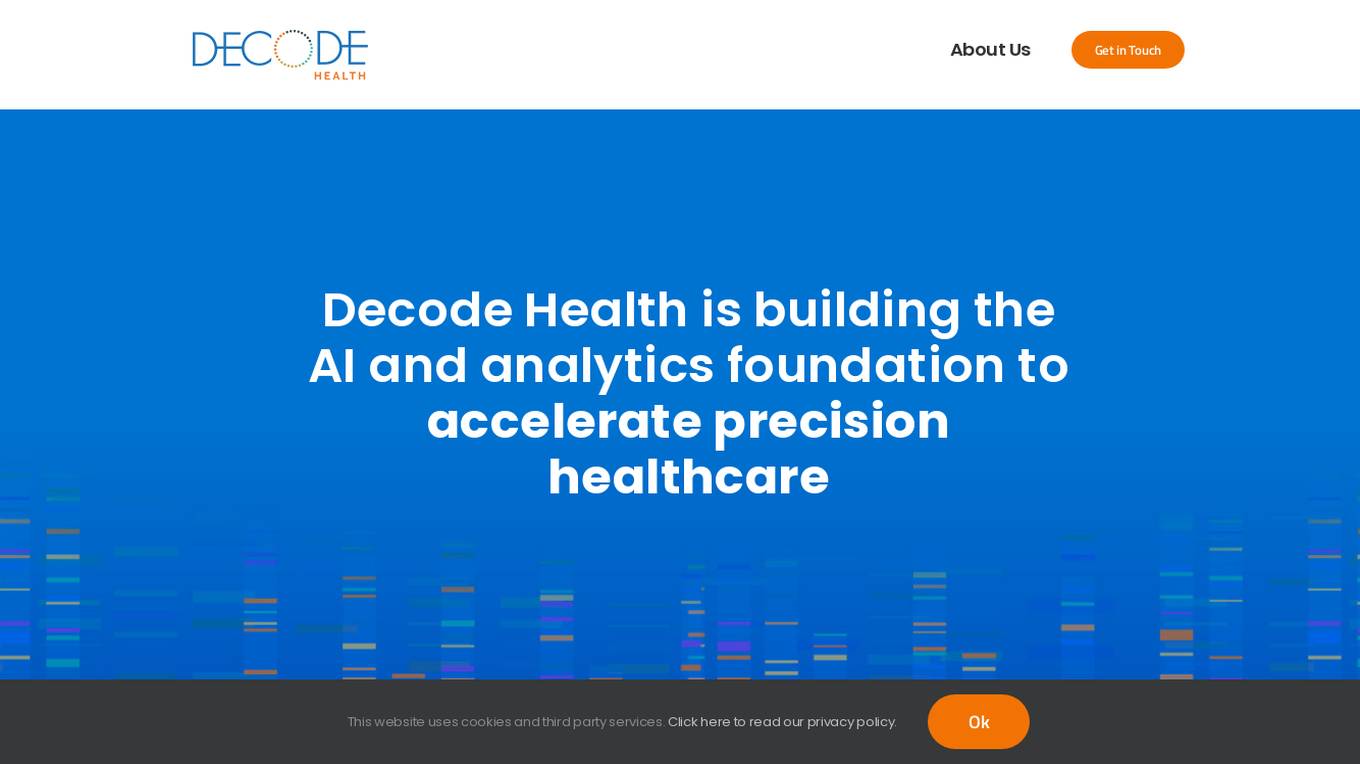
Decode Health
Decode Health is an AI and analytics platform that accelerates precision healthcare by supporting healthcare teams in launching machine learning and advanced analytics projects. The platform collaborates with pharmaceutical companies to enhance patient selection, biomarker identification, diagnostics development, data asset creation, and analysis. Decode Health offers modules for biomarker discovery, patient recruitment, next-generation sequencing, data analysis, and clinical decision support. The platform aims to provide fast, accurate, and actionable insights for acute and chronic disease management. Decode Health's custom-built modules are designed to work together to solve complex data problems efficiently.
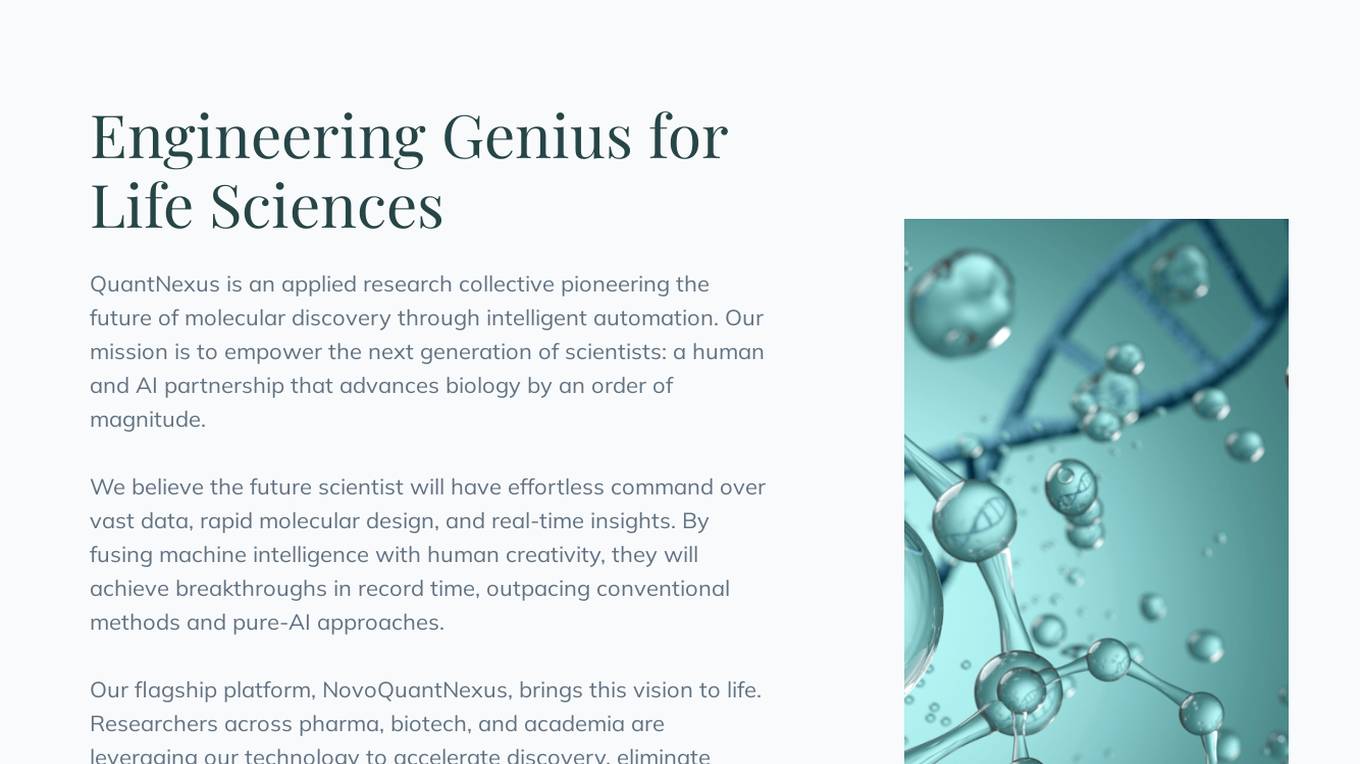
QuantNexus
QuantNexus is an applied research collective that pioneers the future of molecular discovery through intelligent automation. Their mission is to empower the next generation of scientists by creating a human and AI partnership that advances biology significantly. The platform, NovoQuantNexus, fuses machine intelligence with human creativity to achieve breakthroughs in record time, outpacing conventional methods and pure-AI approaches. Researchers in pharma, biotech, and academia are leveraging this technology to accelerate discovery and redefine possibilities in life sciences.
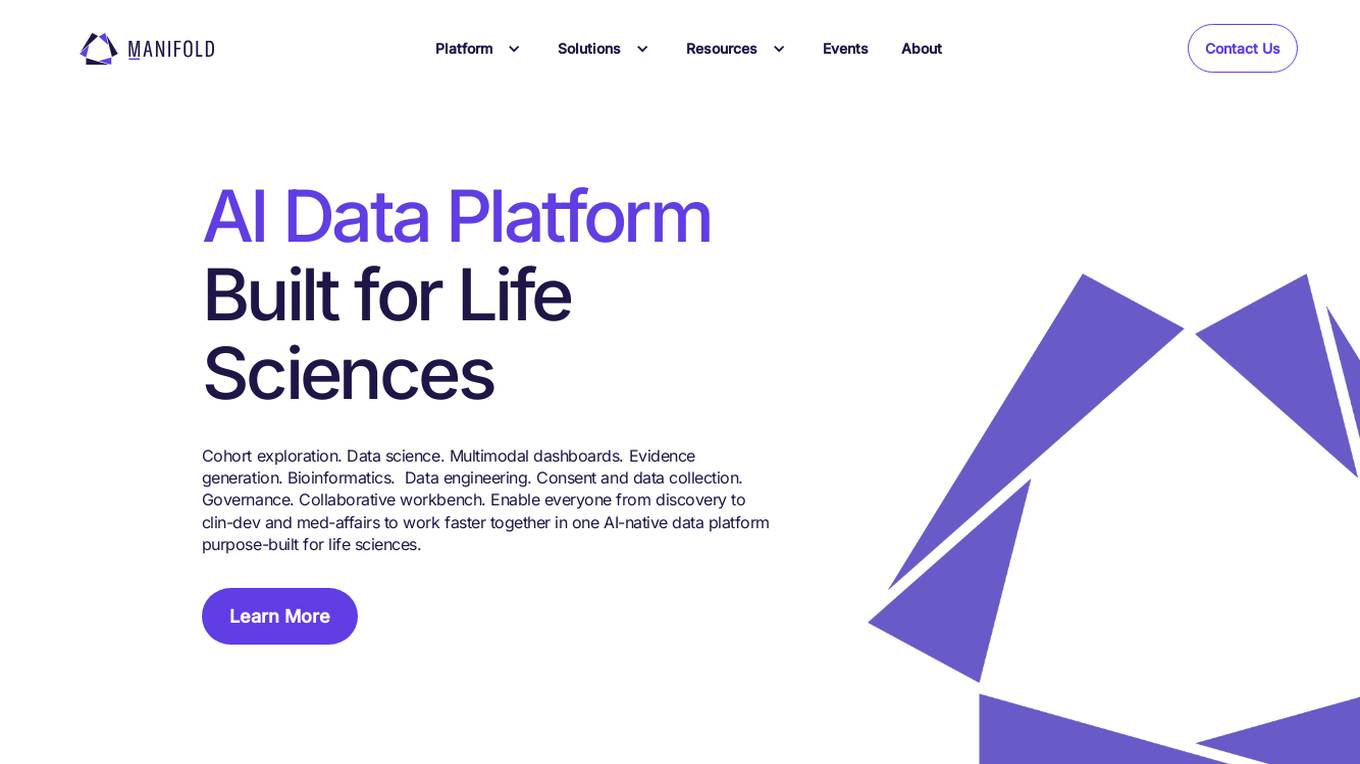
Manifold
Manifold is an AI data platform designed specifically for life sciences. It offers a collaborative workbench, data science tools, AI-powered cohort exploration, batch bioinformatics, data dashboards, data engineering solutions, access control, and more. The platform aims to enable faster collaboration and research in the life sciences field by providing a comprehensive suite of tools and features. Trusted by leading institutions, Manifold helps streamline data collection, analysis, and collaboration to accelerate scientific research.
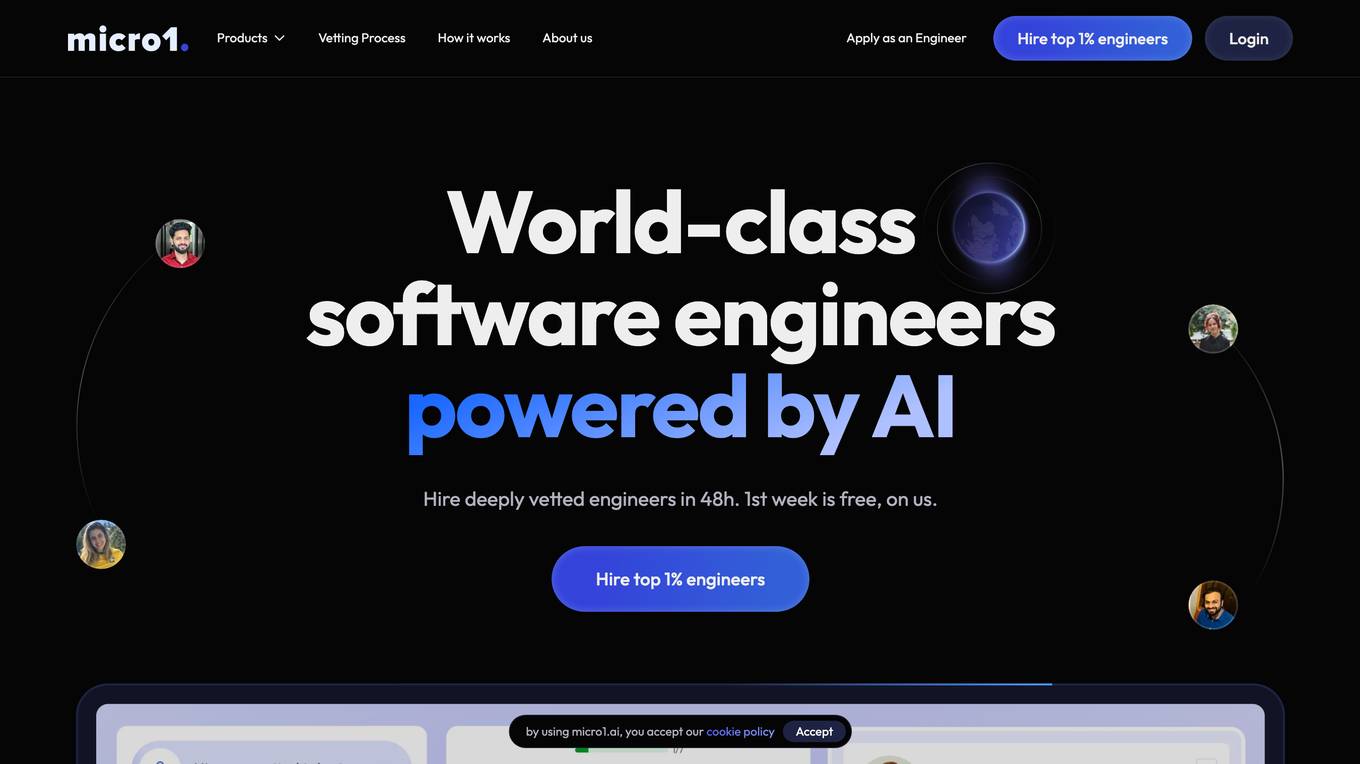
micro1
micro1 is an AI recruitment engine designed to hire top global talent efficiently. It utilizes human data produced by subject matter experts to provide end-to-end post-training services. The platform offers a Zara AI recruiter agent to identify and hire the best talent on earth, catering to various industries such as tech startups, staffing agencies, and enterprises. With features like sourcing and vetting candidates, seamless onboarding, and high-quality data training, micro1 aims to streamline the recruitment process and save time and costs for businesses. The platform also provides resources for companies and talent, including case studies, cost savings calculators, and interview preparation tools.
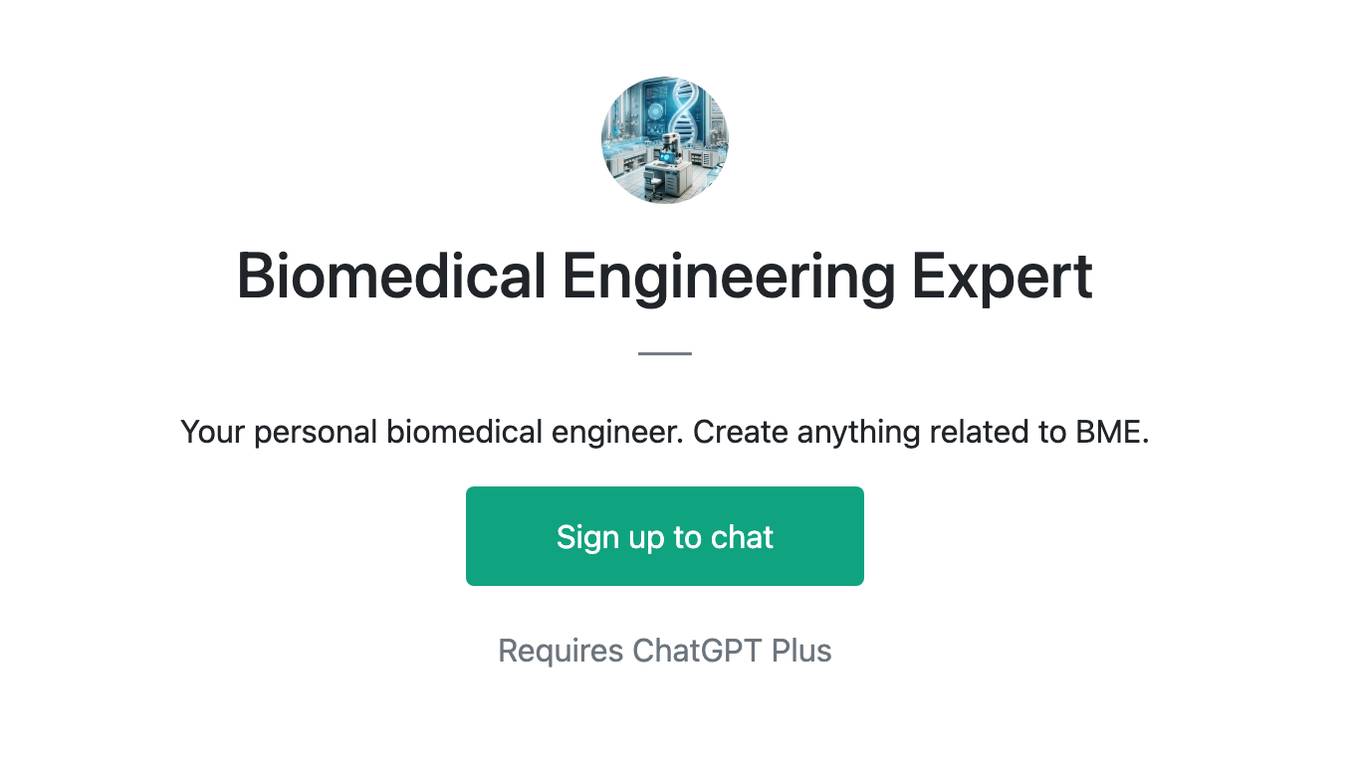
Biomedical Engineering Expert
Your personal biomedical engineer. Create anything related to BME.
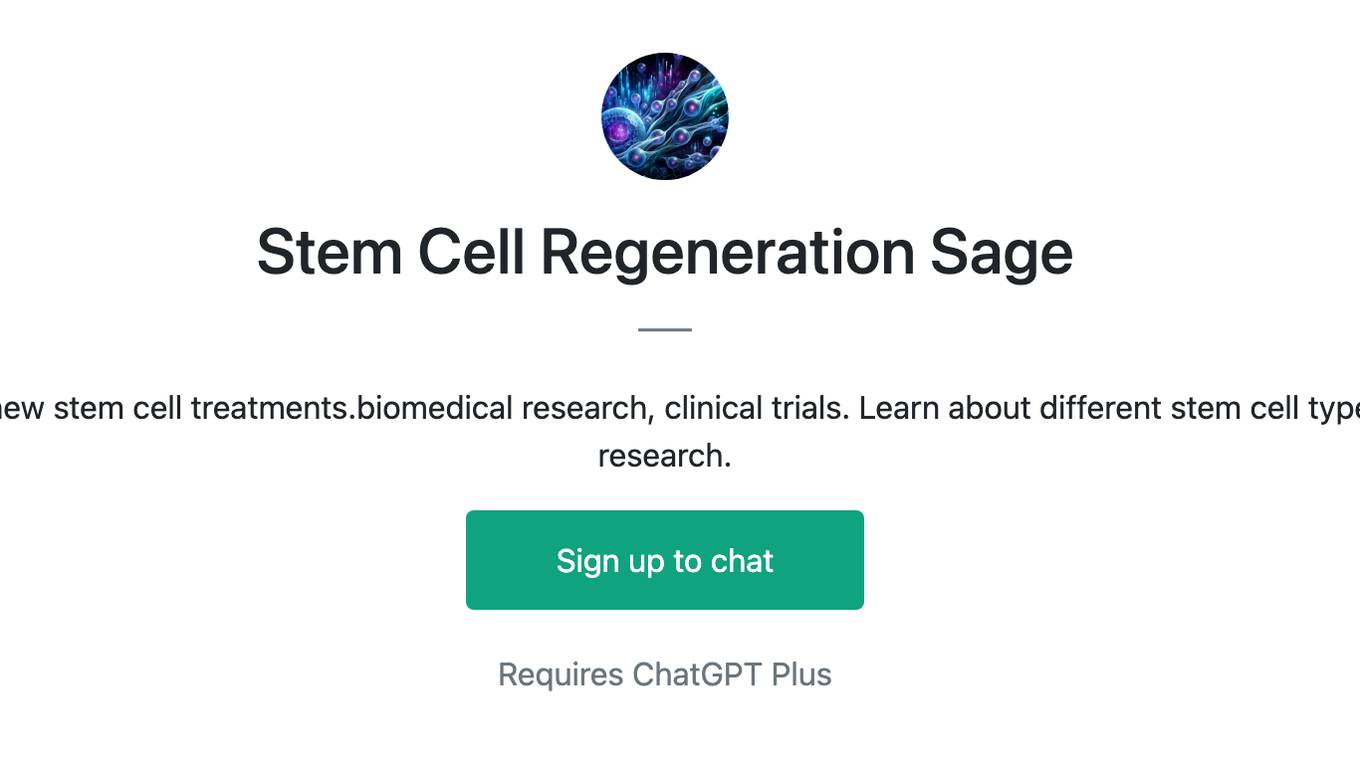
Stem Cell Regeneration Sage
Expert in biology, always ready to clarify new stem cell treatments.biomedical research, clinical trials. Learn about different stem cell types, current/future uses, and the latest in research.
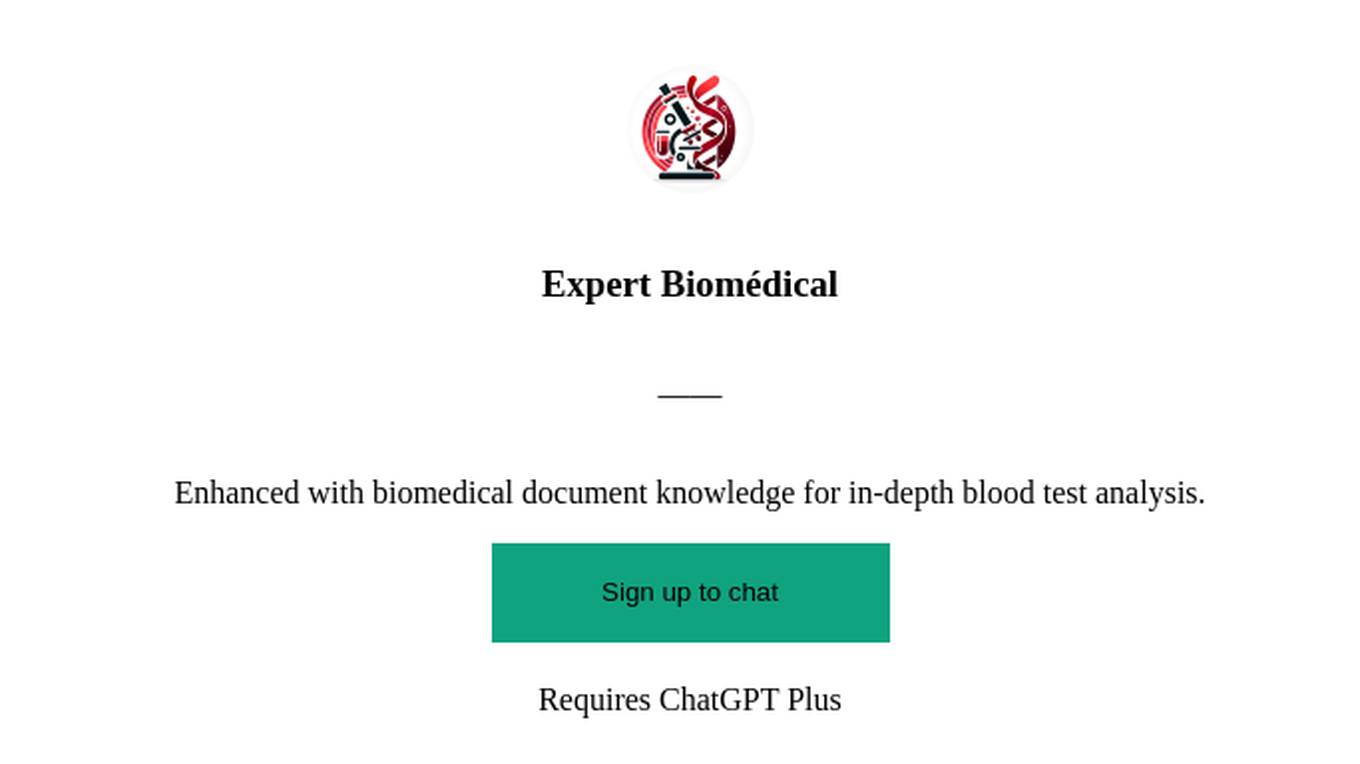
Expert Biomédical
Enhanced with biomedical document knowledge for in-depth blood test analysis.
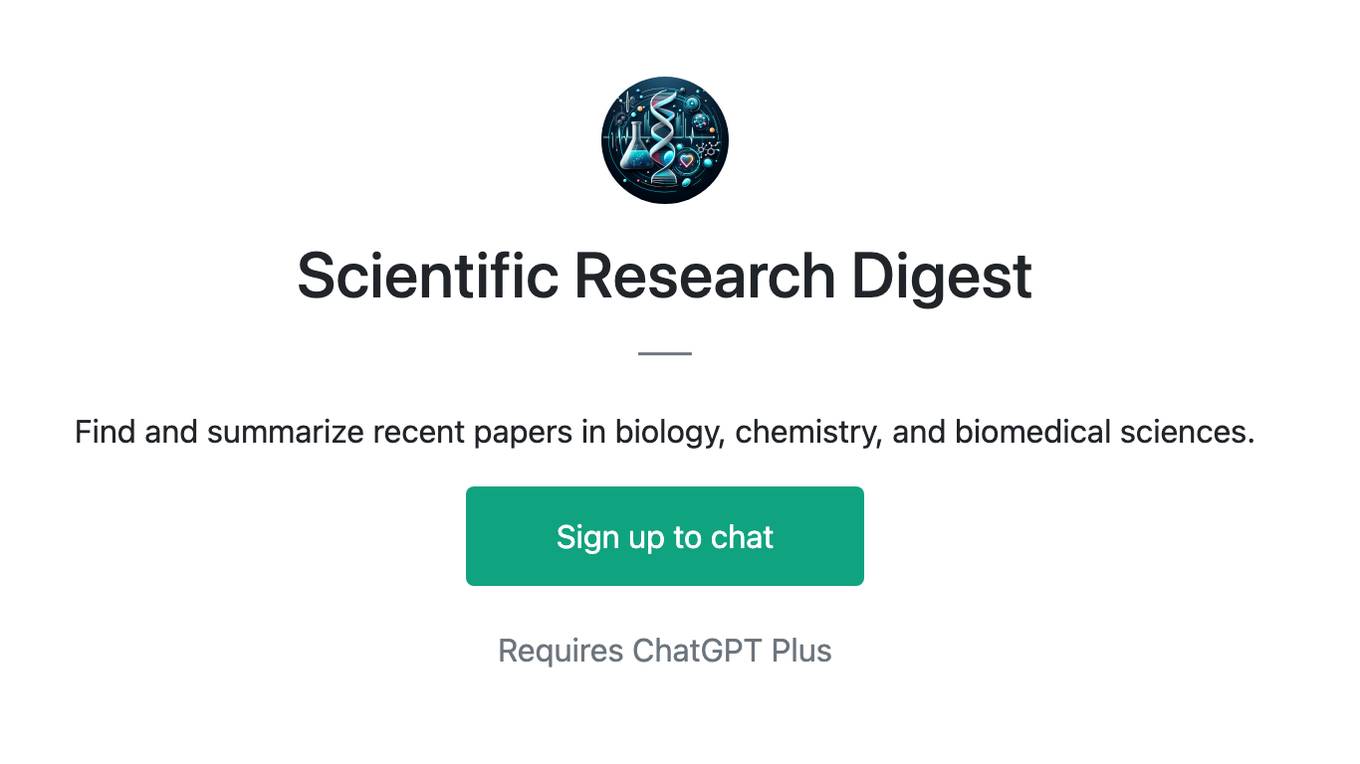
Scientific Research Digest
Find and summarize recent papers in biology, chemistry, and biomedical sciences.
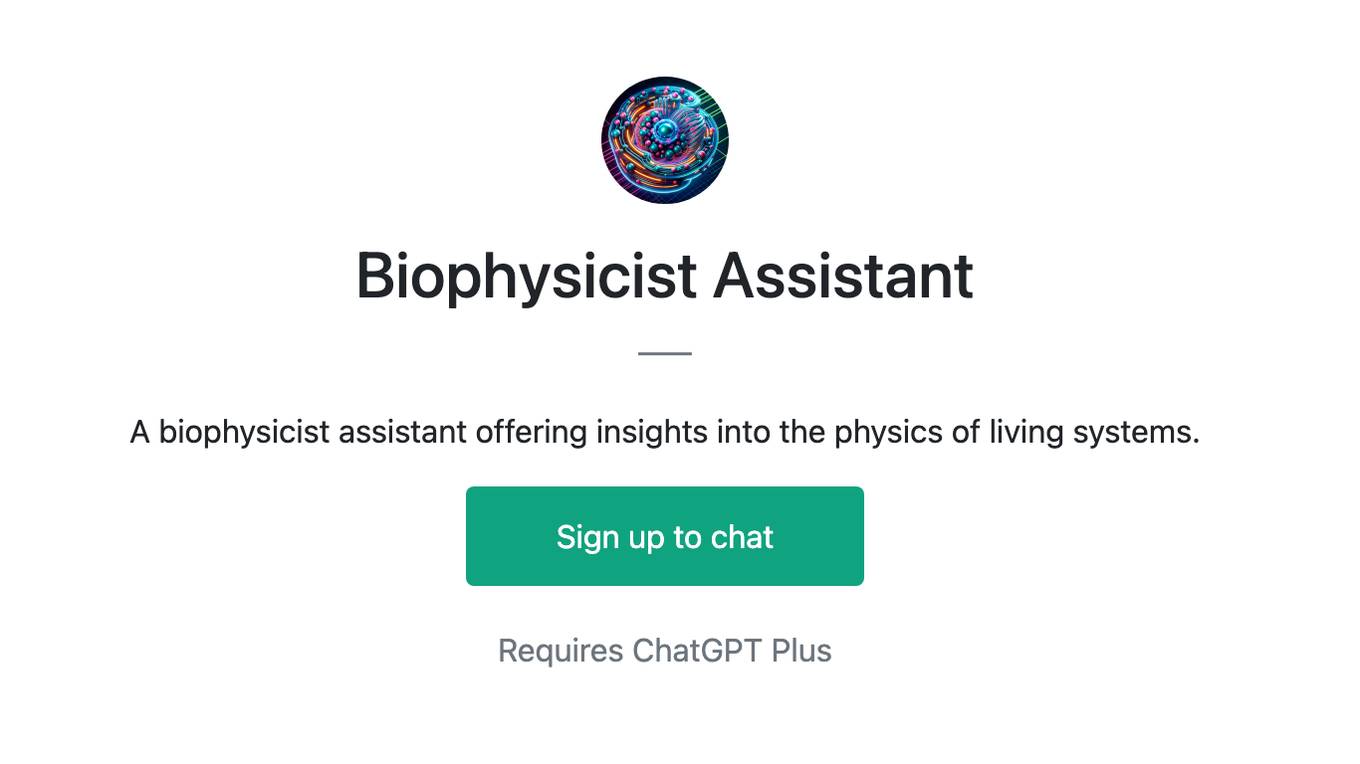
Biophysicist Assistant
A biophysicist assistant offering insights into the physics of living systems.
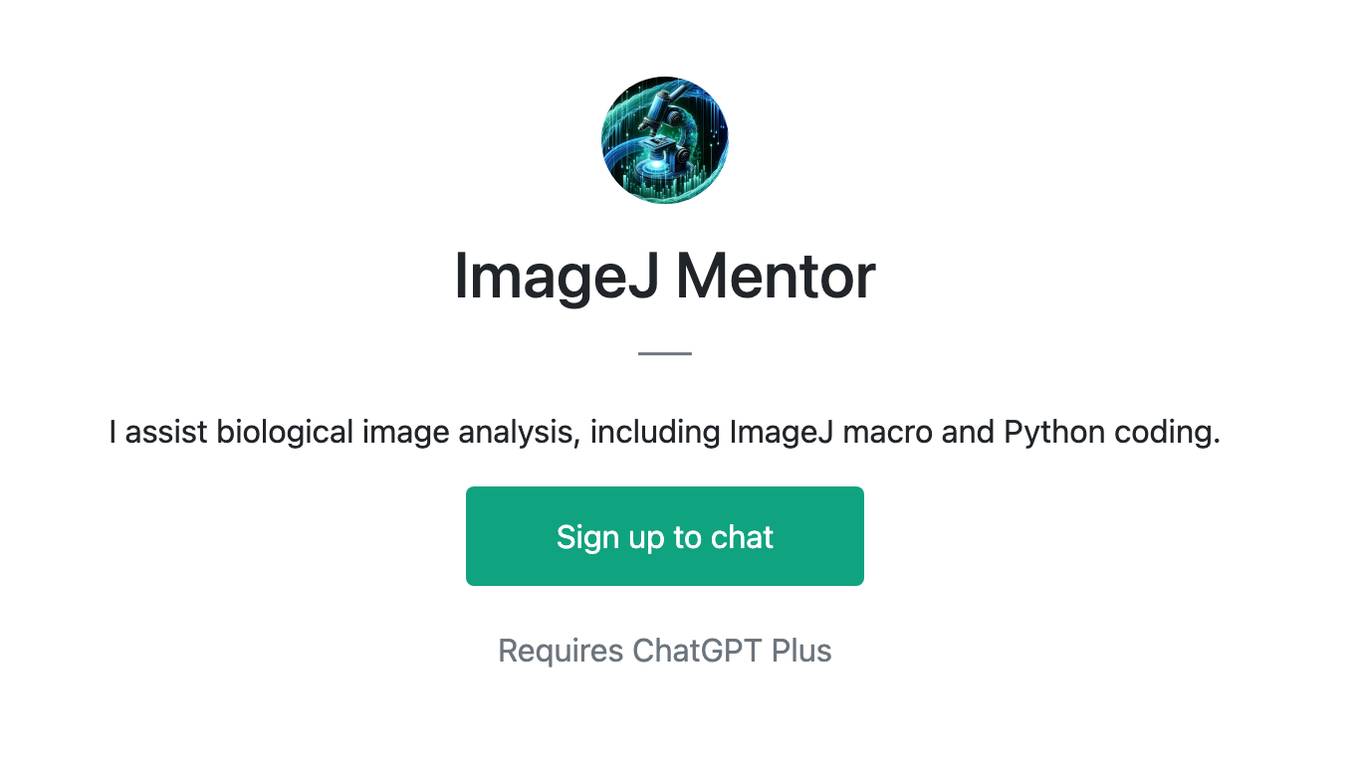
ImageJ Mentor
I assist biological image analysis, including ImageJ macro and Python coding.
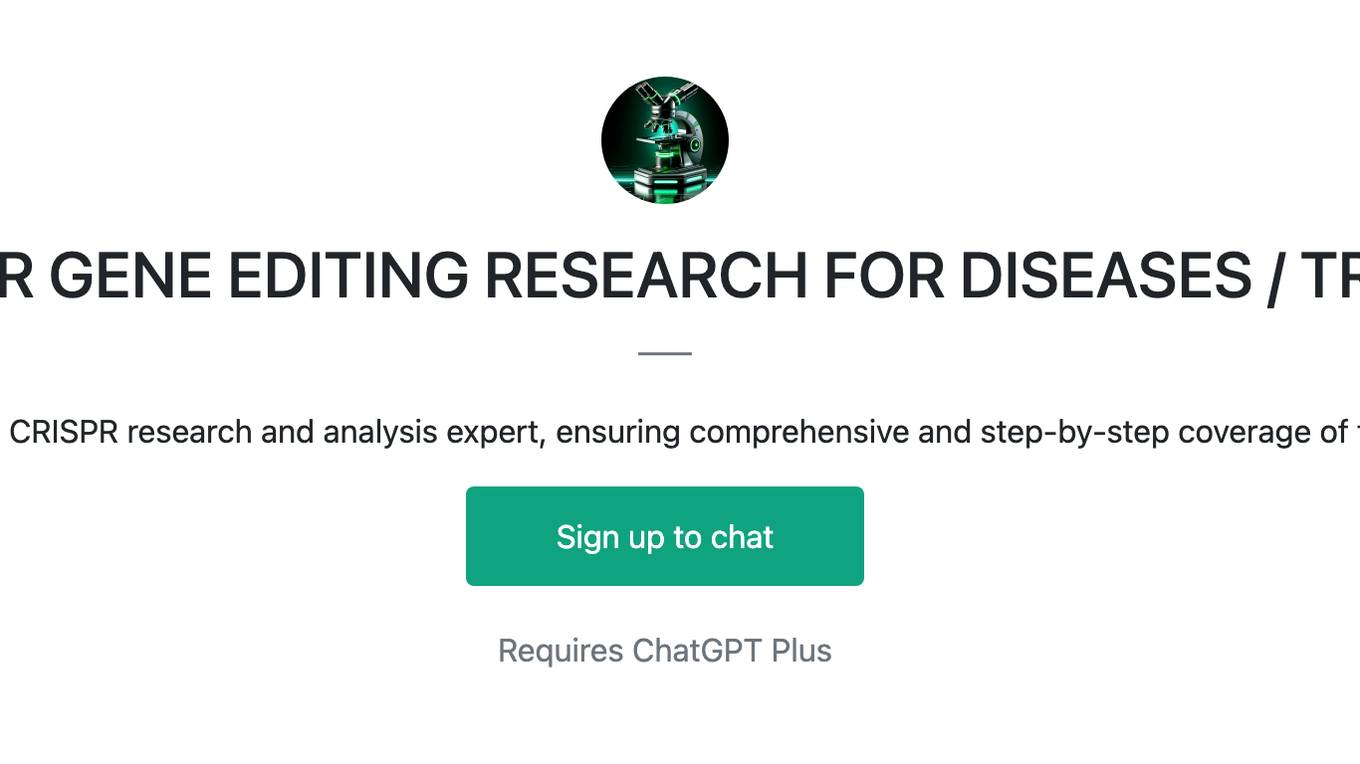
CRISPR GENE EDITING RESEARCH FOR DISEASES / TRAITS
In-depth CRISPR research and analysis expert, ensuring comprehensive and step-by-step coverage of topics.
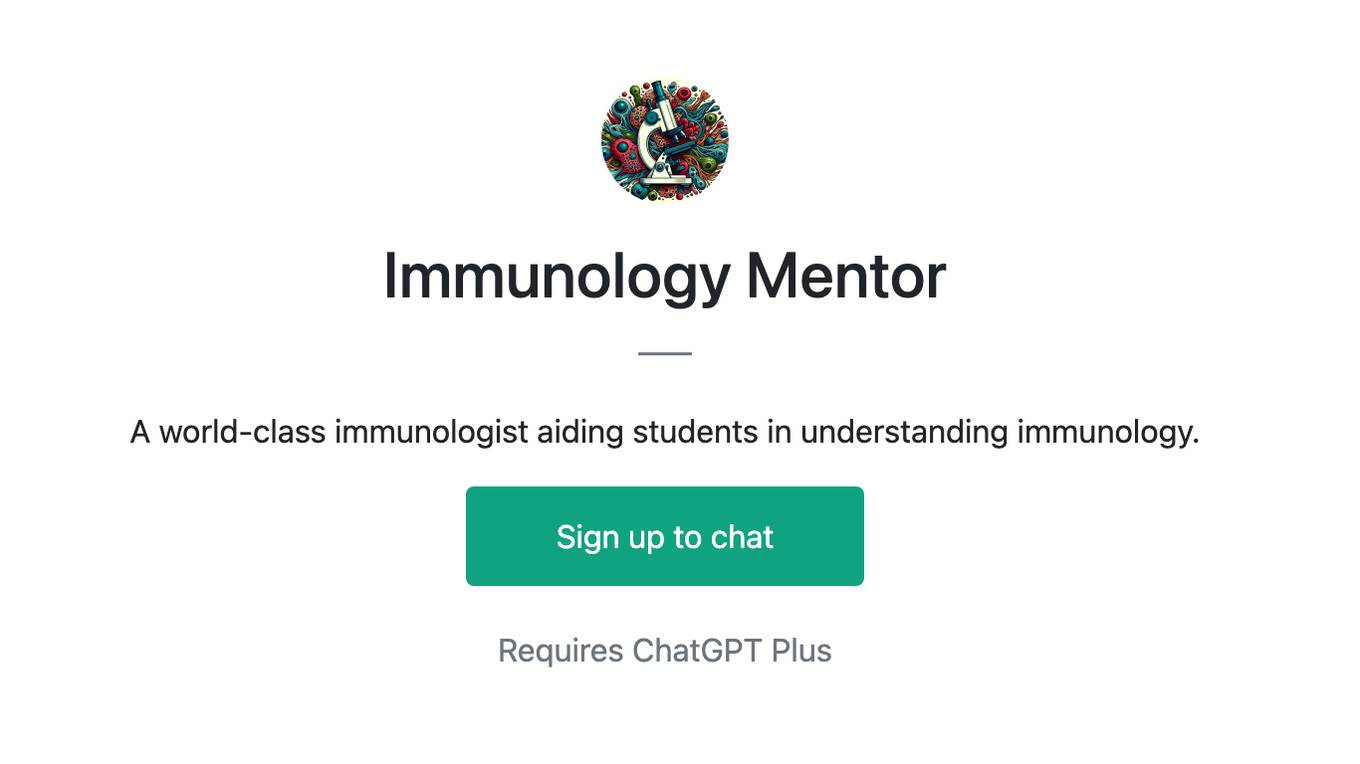
Immunology Mentor
A world-class immunologist aiding students in understanding immunology.
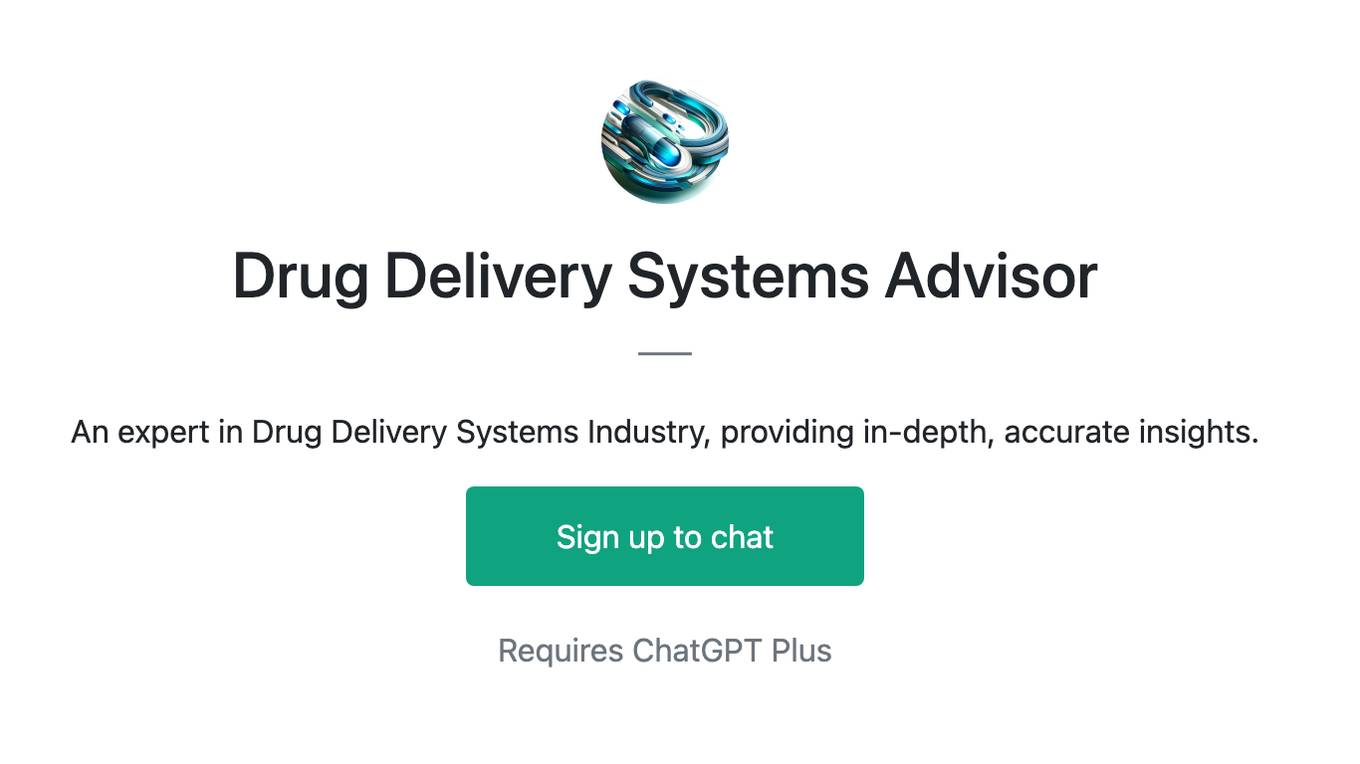
Drug Delivery Systems Advisor
An expert in Drug Delivery Systems Industry, providing in-depth, accurate insights.
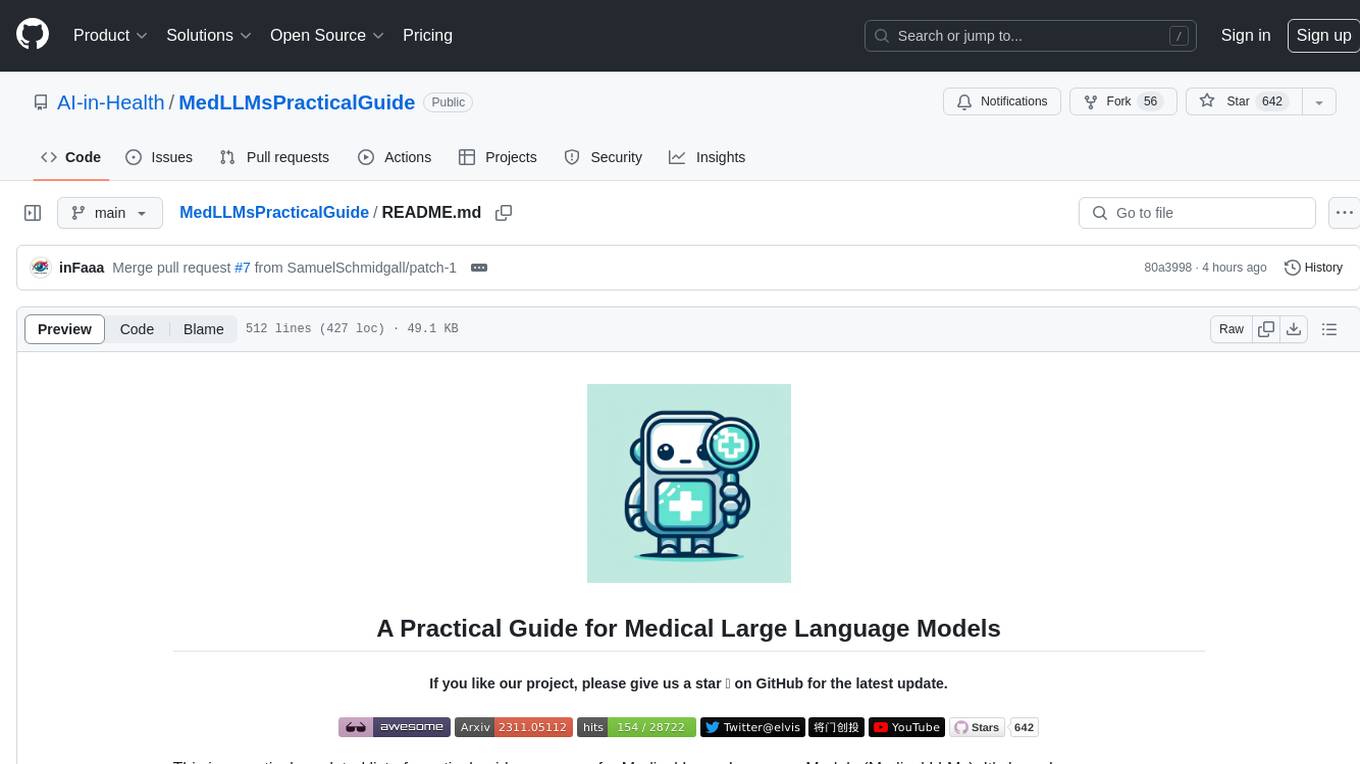
MedLLMsPracticalGuide
This repository serves as a practical guide for Medical Large Language Models (Medical LLMs) and provides resources, surveys, and tools for building, fine-tuning, and utilizing LLMs in the medical domain. It covers a wide range of topics including pre-training, fine-tuning, downstream biomedical tasks, clinical applications, challenges, future directions, and more. The repository aims to provide insights into the opportunities and challenges of LLMs in medicine and serve as a practical resource for constructing effective medical LLMs.

llms-tools
The 'llms-tools' repository is a comprehensive collection of AI tools, open-source projects, and research related to Large Language Models (LLMs) and Chatbots. It covers a wide range of topics such as AI in various domains, open-source models, chats & assistants, visual language models, evaluation tools, libraries, devices, income models, text-to-image, computer vision, audio & speech, code & math, games, robotics, typography, bio & med, military, climate, finance, and presentation. The repository provides valuable resources for researchers, developers, and enthusiasts interested in exploring the capabilities of LLMs and related technologies.
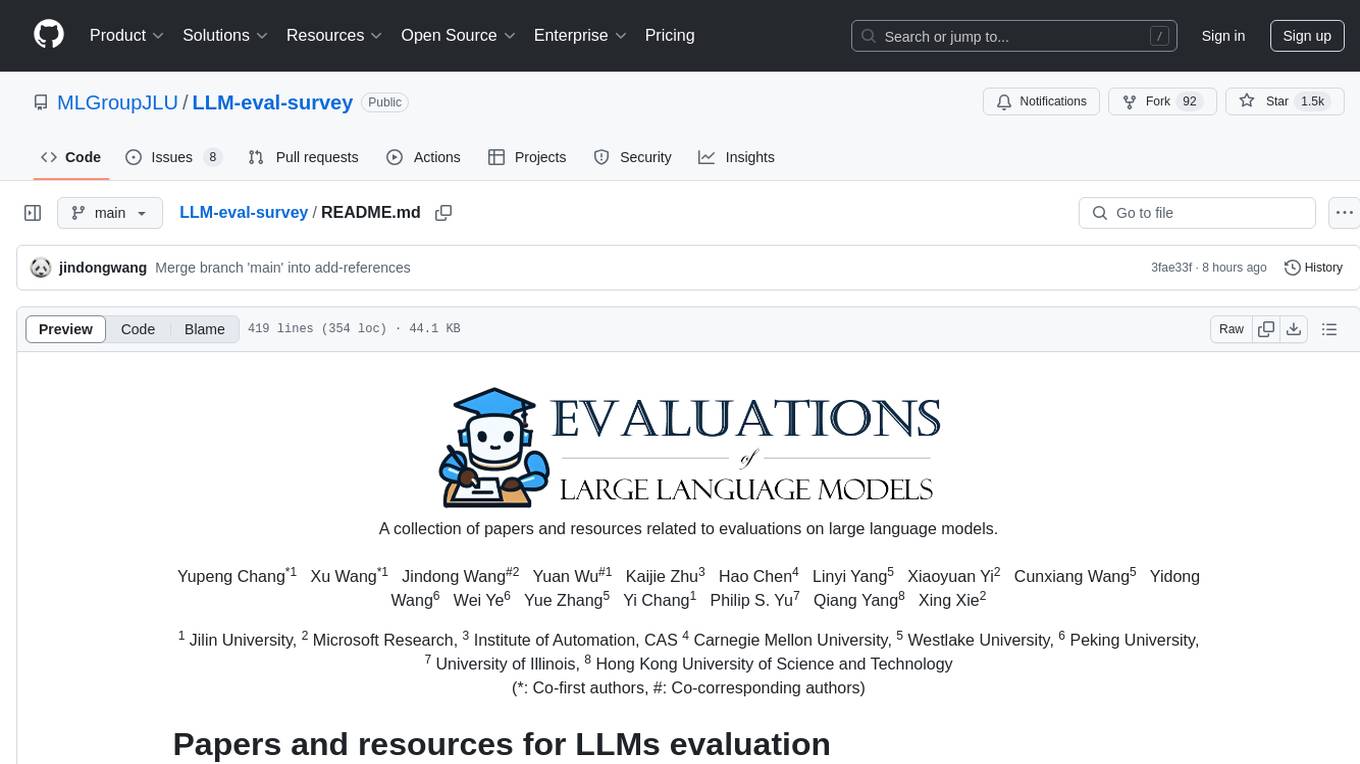
LLM-eval-survey
LLM-eval-survey is a collection of papers and resources related to evaluations on large language models. It includes a survey on the evaluation of large language models, covering various aspects such as natural language processing, robustness, ethics, biases, trustworthiness, social science, natural science, engineering, medical applications, agent applications, and other applications. The repository provides a comprehensive overview of different evaluation tasks and benchmarks for large language models.
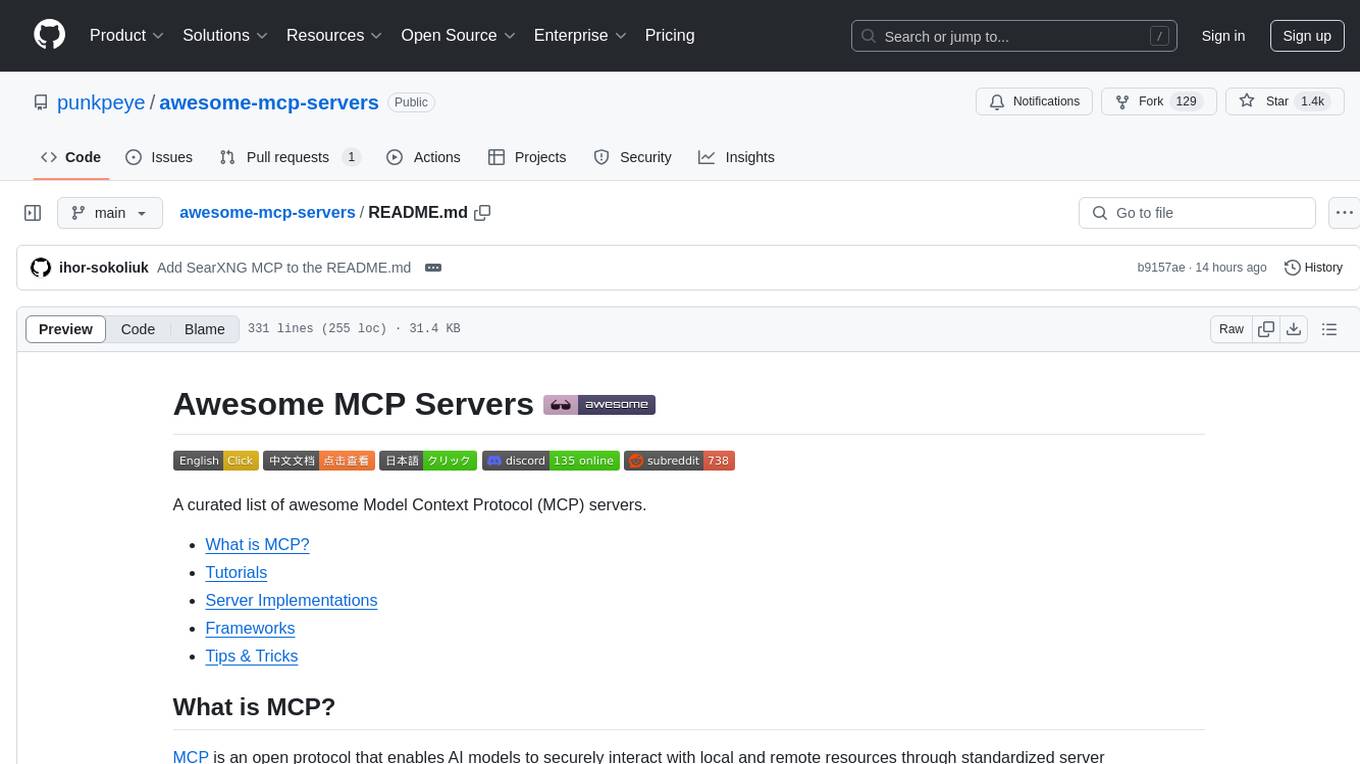
awesome-mcp-servers
Awesome MCP Servers is a curated list of Model Context Protocol (MCP) servers that enable AI models to securely interact with local and remote resources through standardized server implementations. The list includes production-ready and experimental servers that extend AI capabilities through file access, database connections, API integrations, and other contextual services.
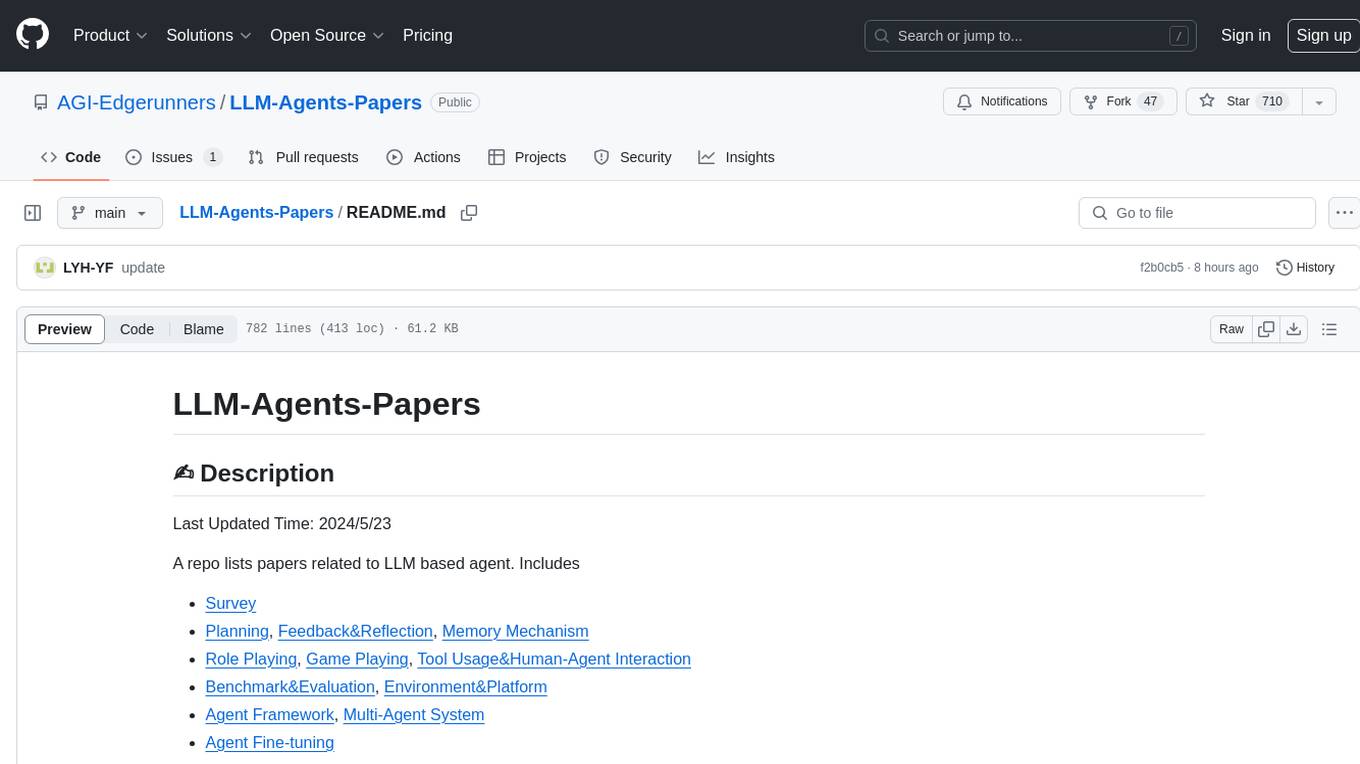
LLM-Agents-Papers
A repository that lists papers related to Large Language Model (LLM) based agents. The repository covers various topics including survey, planning, feedback & reflection, memory mechanism, role playing, game playing, tool usage & human-agent interaction, benchmark & evaluation, environment & platform, agent framework, multi-agent system, and agent fine-tuning. It provides a comprehensive collection of research papers on LLM-based agents, exploring different aspects of AI agent architectures and applications.
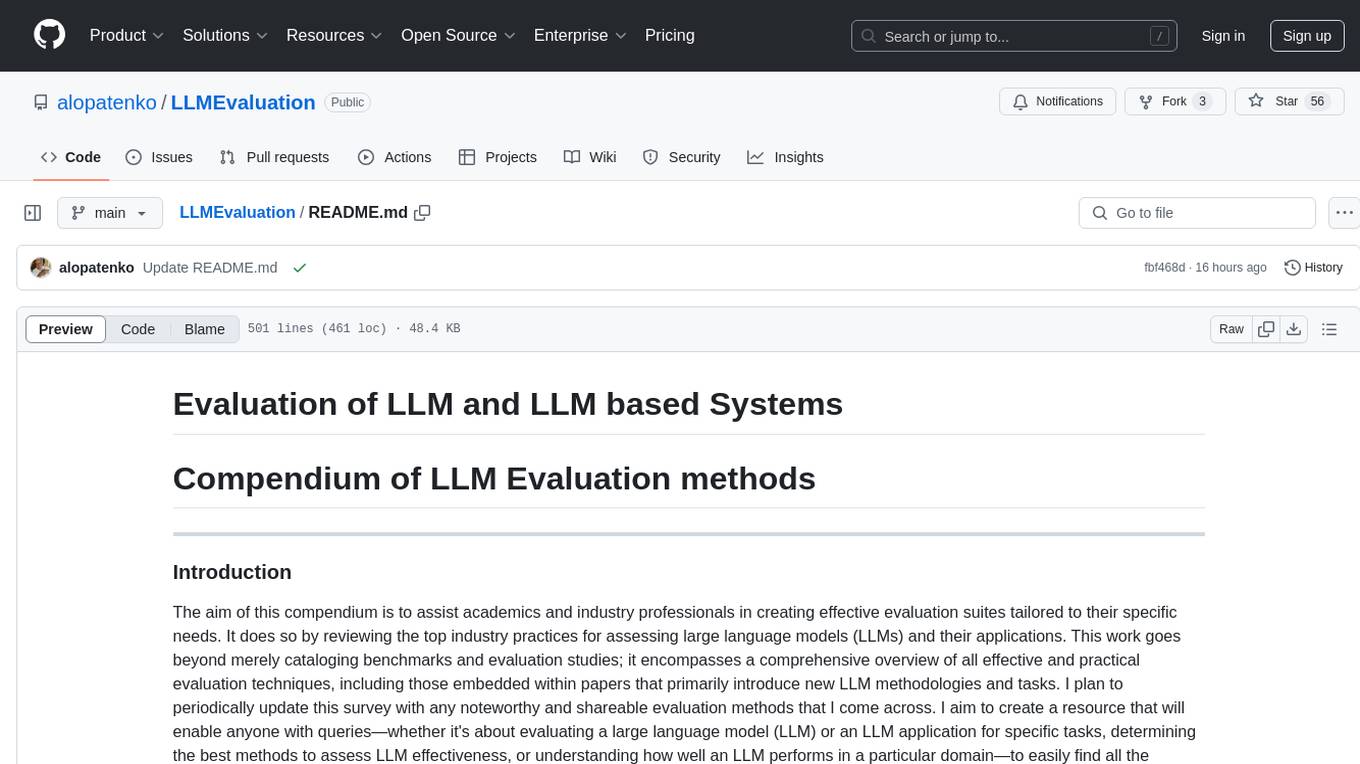
LLMEvaluation
The LLMEvaluation repository is a comprehensive compendium of evaluation methods for Large Language Models (LLMs) and LLM-based systems. It aims to assist academics and industry professionals in creating effective evaluation suites tailored to their specific needs by reviewing industry practices for assessing LLMs and their applications. The repository covers a wide range of evaluation techniques, benchmarks, and studies related to LLMs, including areas such as embeddings, question answering, multi-turn dialogues, reasoning, multi-lingual tasks, ethical AI, biases, safe AI, code generation, summarization, software performance, agent LLM architectures, long text generation, graph understanding, and various unclassified tasks. It also includes evaluations for LLM systems in conversational systems, copilots, search and recommendation engines, task utility, and verticals like healthcare, law, science, financial, and others. The repository provides a wealth of resources for evaluating and understanding the capabilities of LLMs in different domains.
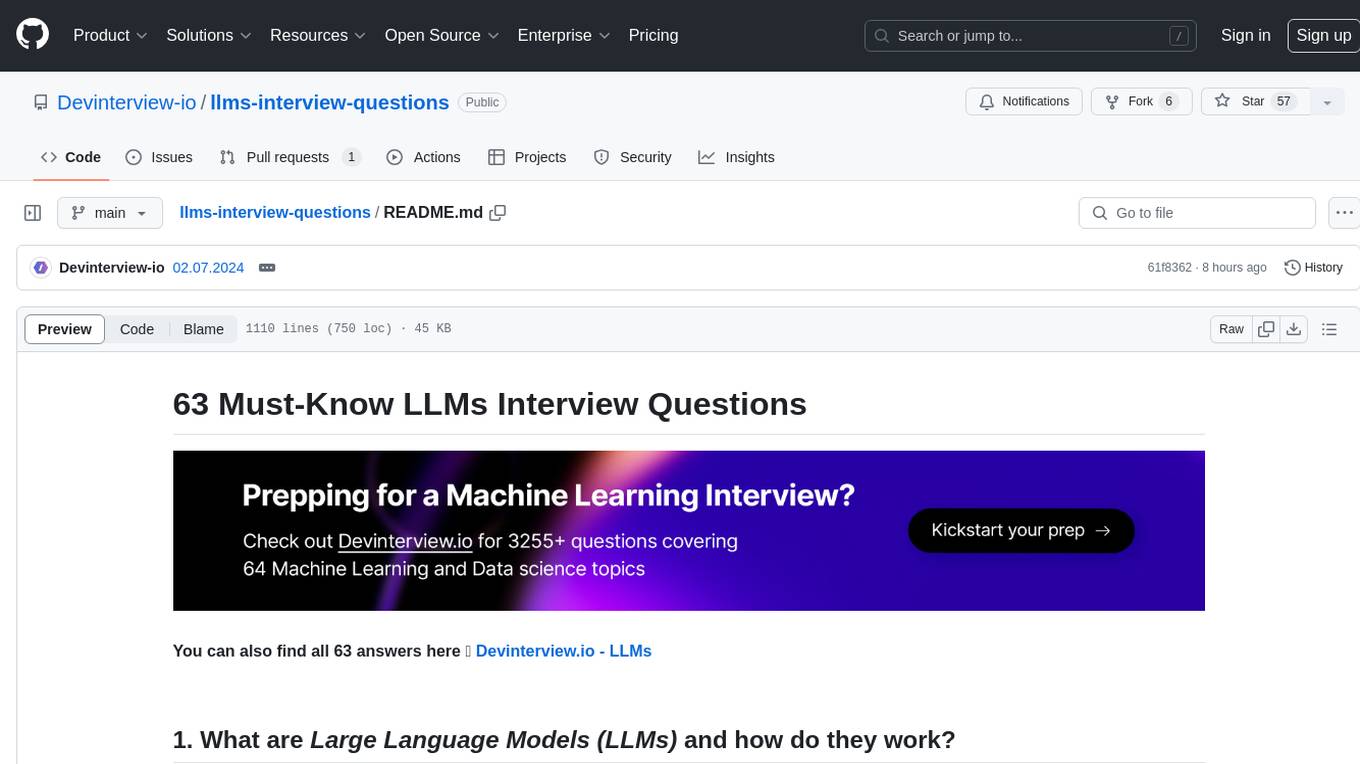
llms-interview-questions
This repository contains a comprehensive collection of 63 must-know Large Language Models (LLMs) interview questions. It covers topics such as the architecture of LLMs, transformer models, attention mechanisms, training processes, encoder-decoder frameworks, differences between LLMs and traditional statistical language models, handling context and long-term dependencies, transformers for parallelization, applications of LLMs, sentiment analysis, language translation, conversation AI, chatbots, and more. The readme provides detailed explanations, code examples, and insights into utilizing LLMs for various tasks.
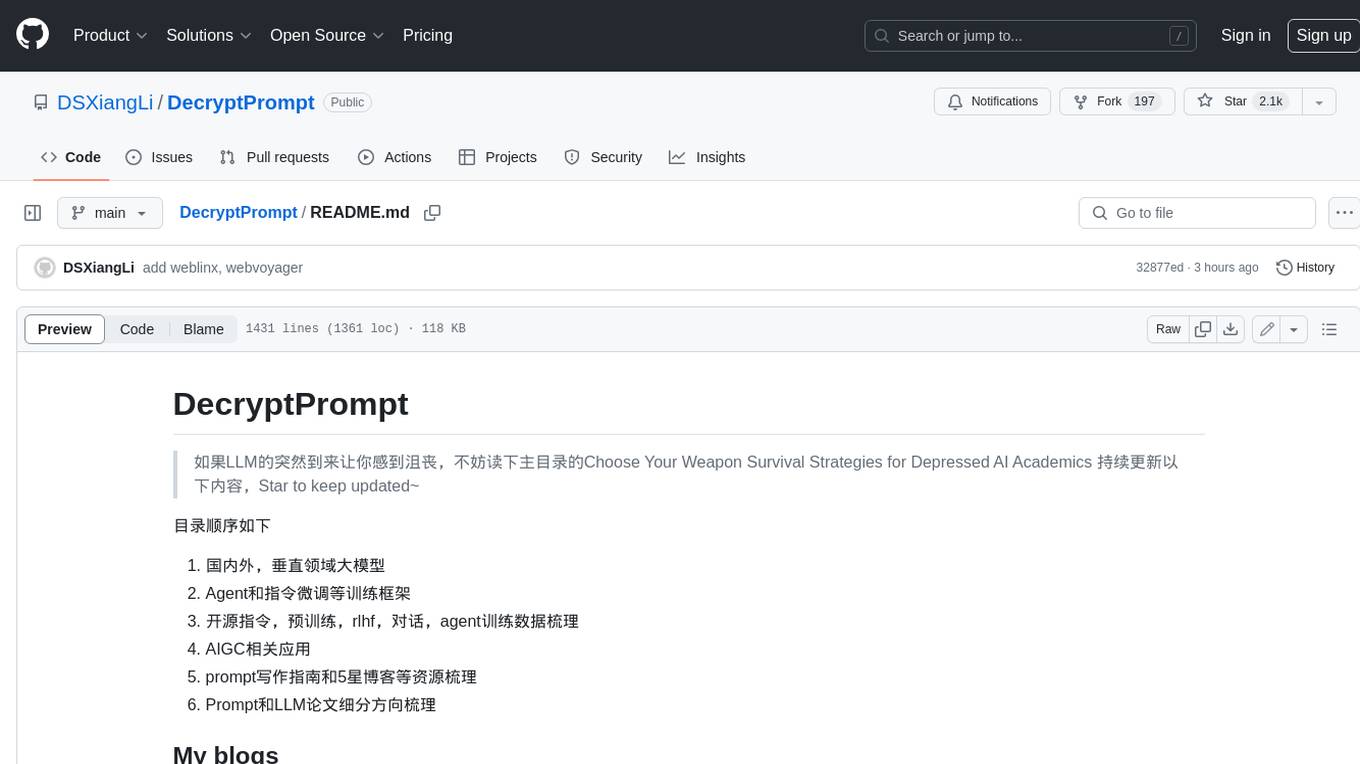
DecryptPrompt
This repository does not provide a tool, but rather a collection of resources and strategies for academics in the field of artificial intelligence who are feeling depressed or overwhelmed by the rapid advancements in the field. The resources include articles, blog posts, and other materials that offer advice on how to cope with the challenges of working in a fast-paced and competitive environment.
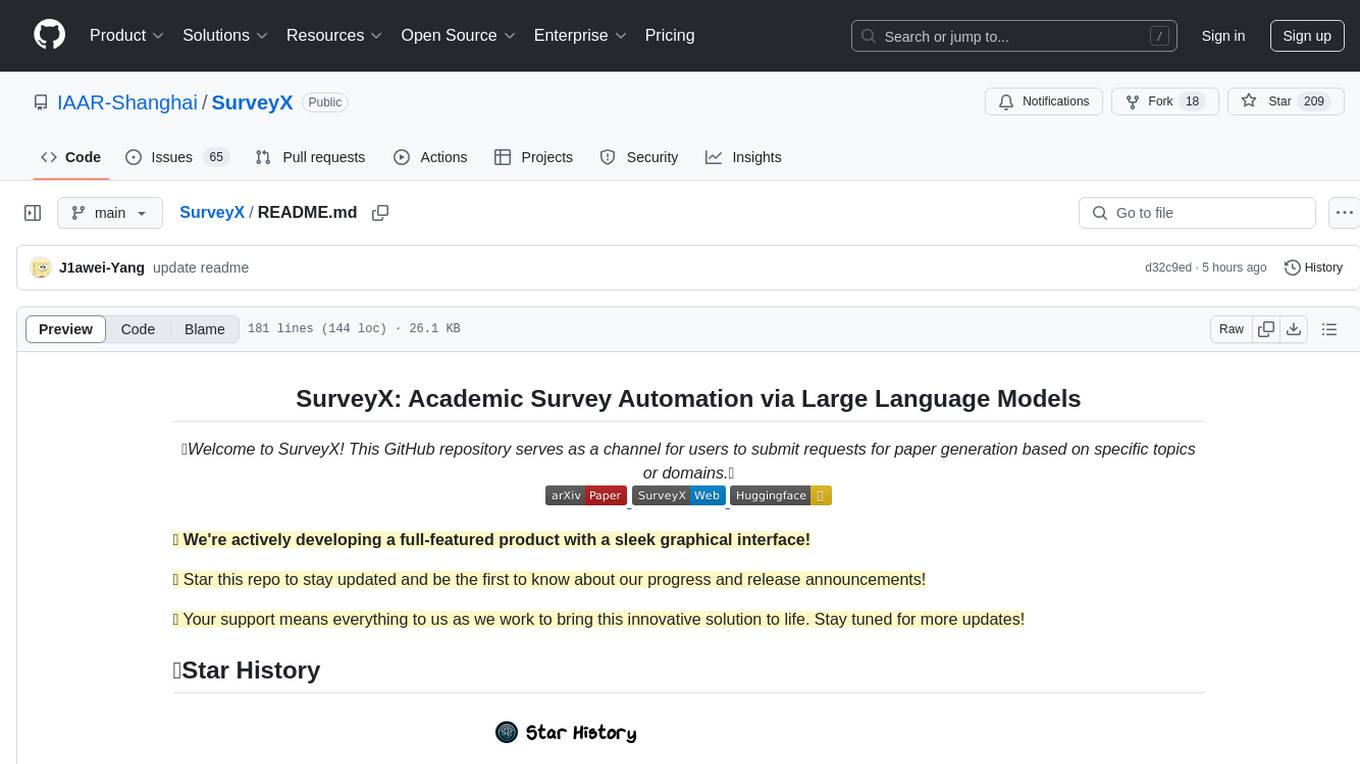
SurveyX
SurveyX is an advanced academic survey automation system that leverages Large Language Models (LLMs) to generate high-quality, domain-specific academic papers and surveys. Users can request comprehensive academic papers or surveys tailored to specific topics by providing a paper title and keywords for literature retrieval. The system streamlines academic research by automating paper creation, saving users time and effort in compiling research content.

nlp-llms-resources
The 'nlp-llms-resources' repository is a comprehensive resource list for Natural Language Processing (NLP) and Large Language Models (LLMs). It covers a wide range of topics including traditional NLP datasets, data acquisition, libraries for NLP, neural networks, sentiment analysis, optical character recognition, information extraction, semantics, topic modeling, multilingual NLP, domain-specific LLMs, vector databases, ethics, costing, books, courses, surveys, aggregators, newsletters, papers, conferences, and societies. The repository provides valuable information and resources for individuals interested in NLP and LLMs.

awesome-generative-information-retrieval
This repository contains a curated list of resources on generative information retrieval, including research papers, datasets, tools, and applications. Generative information retrieval is a subfield of information retrieval that uses generative models to generate new documents or passages of text that are relevant to a given query. This can be useful for a variety of tasks, such as question answering, summarization, and document generation. The resources in this repository are intended to help researchers and practitioners stay up-to-date on the latest advances in generative information retrieval.
